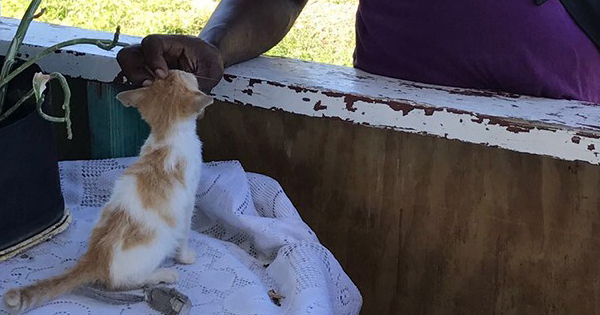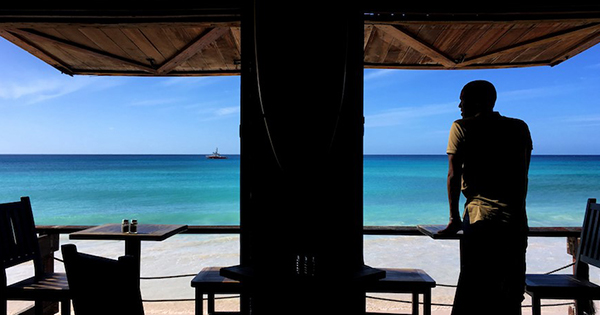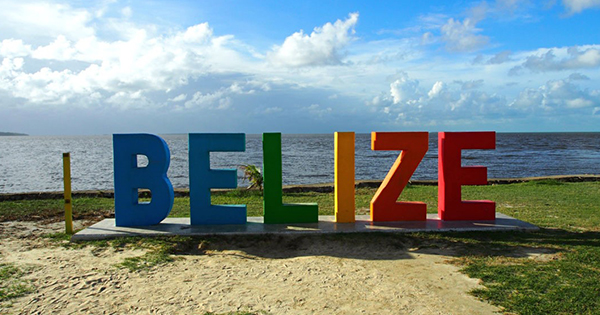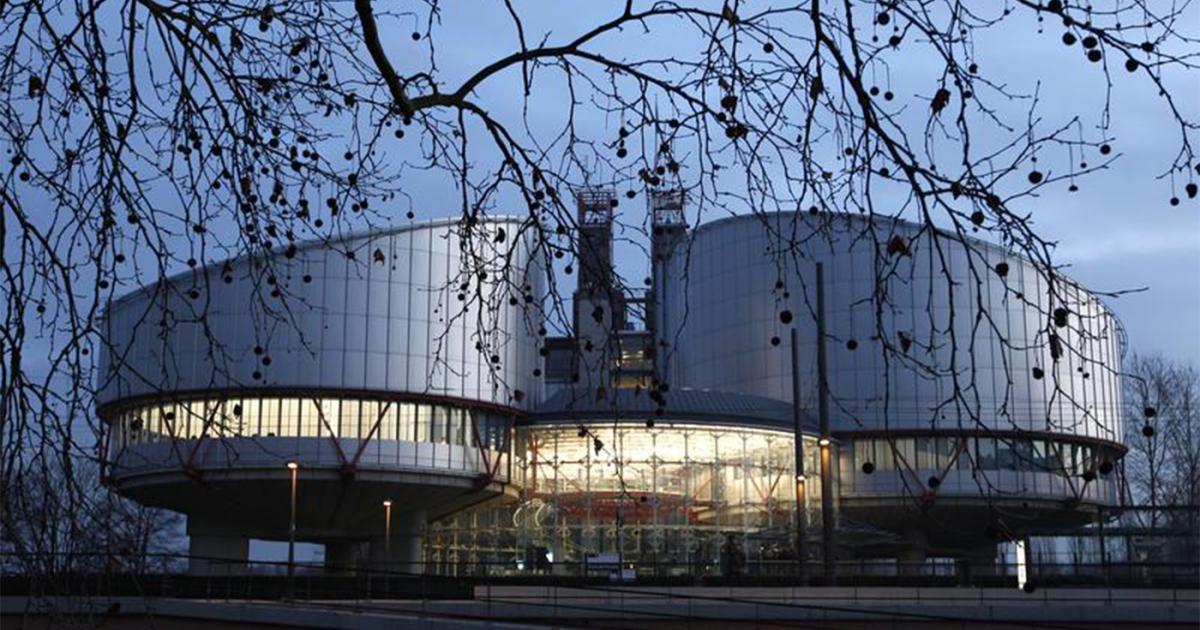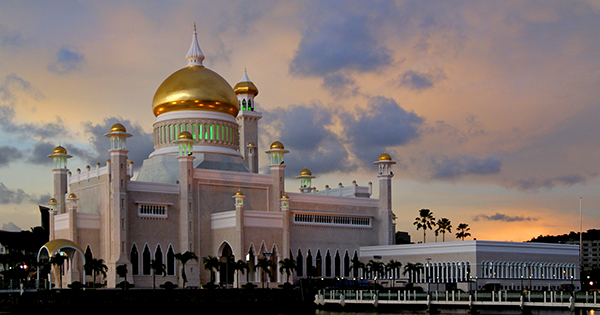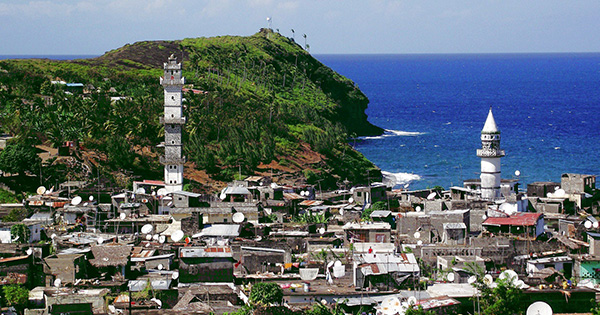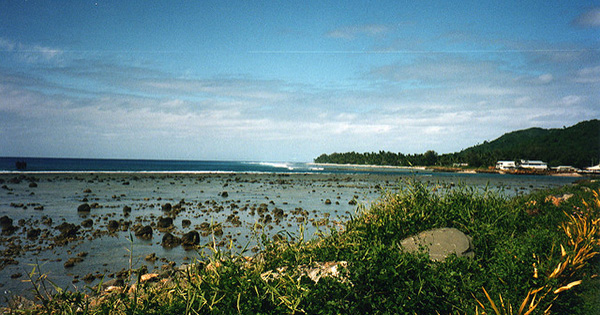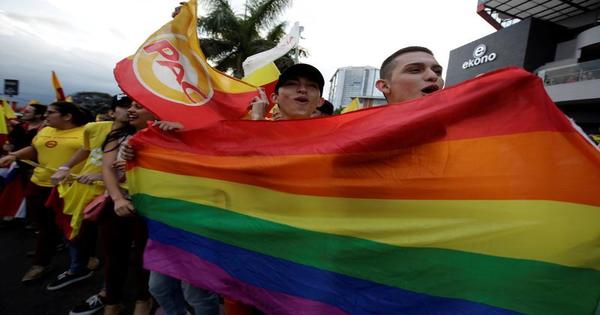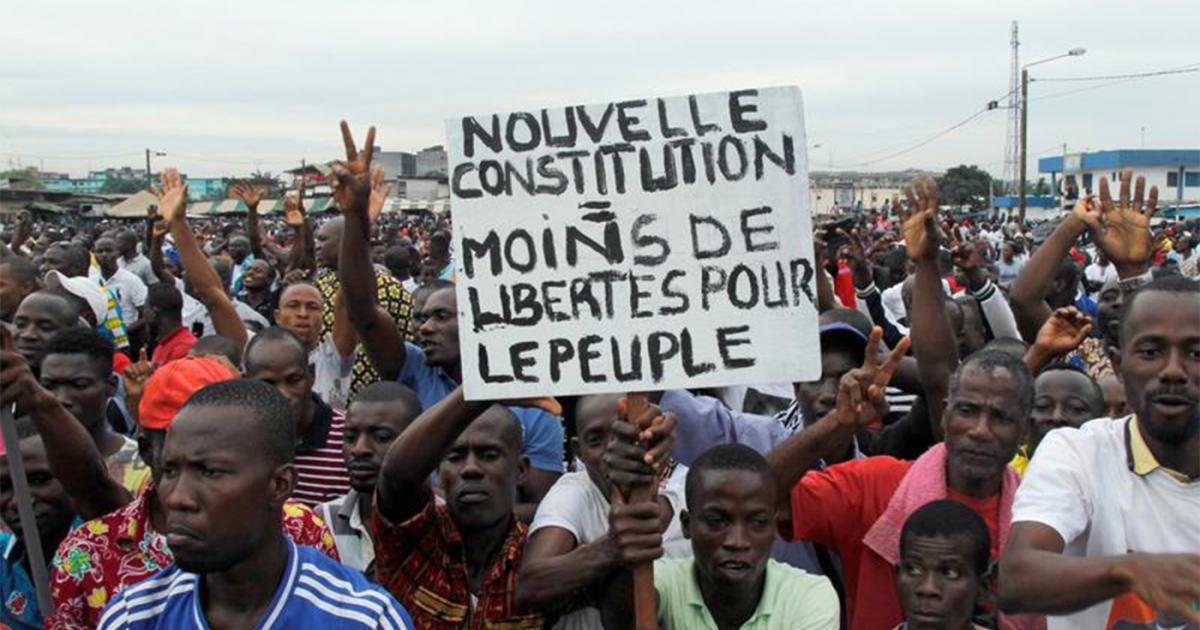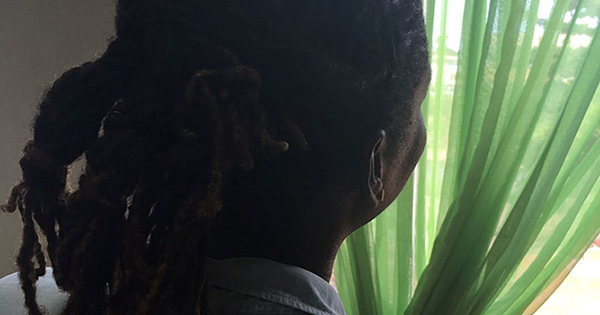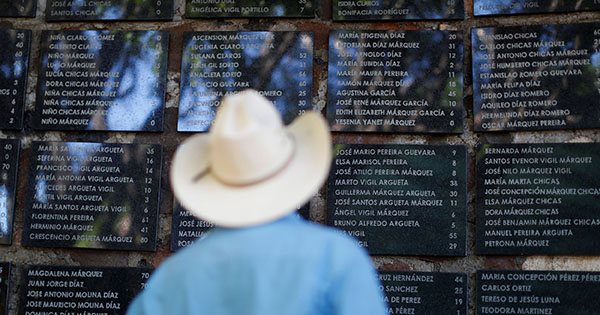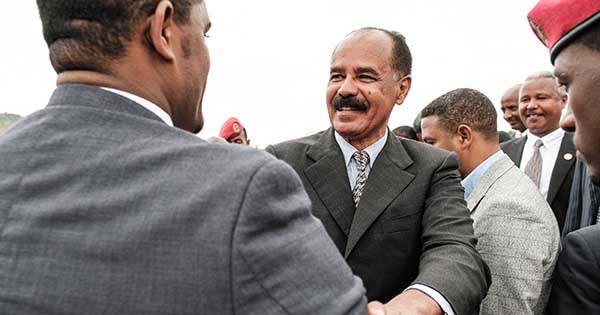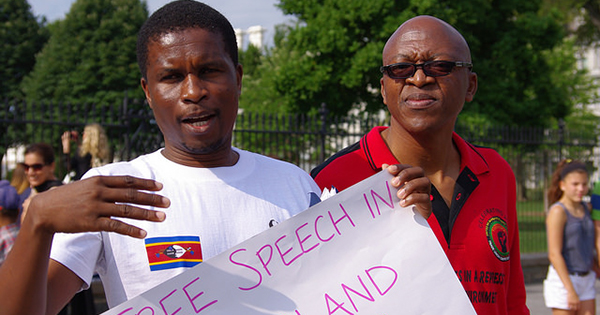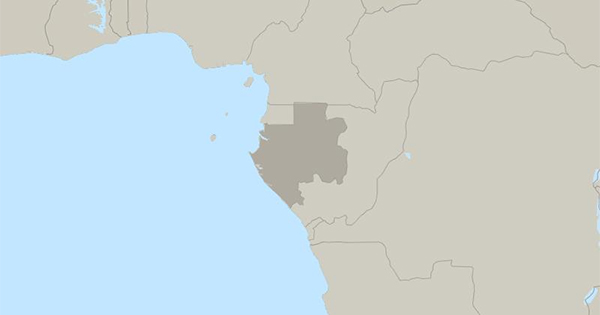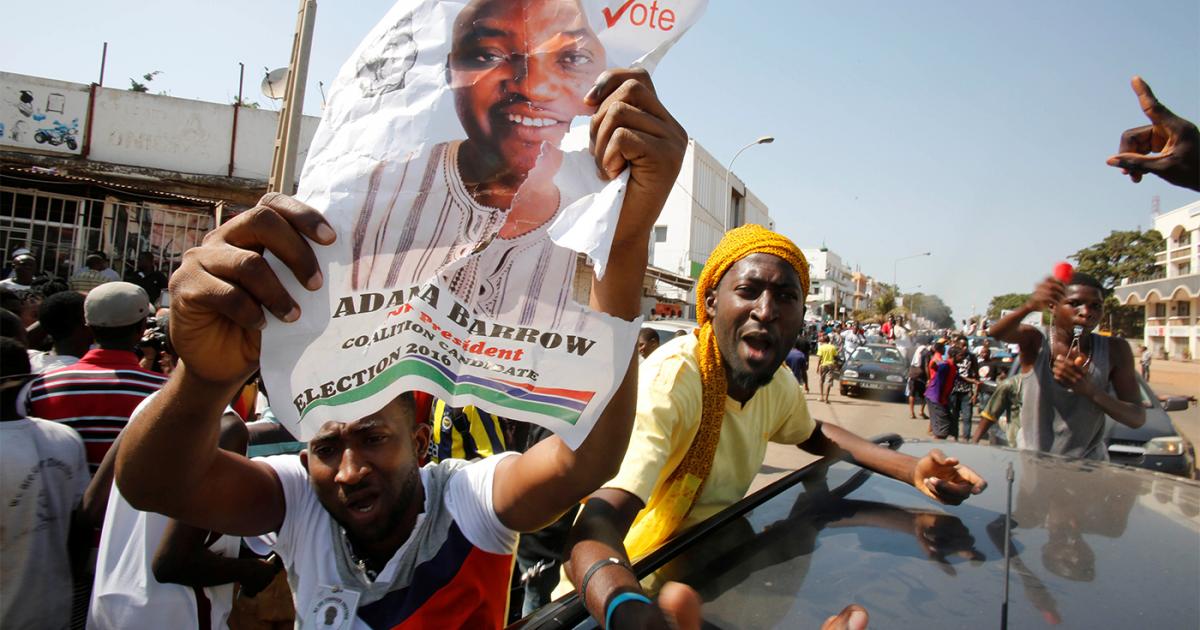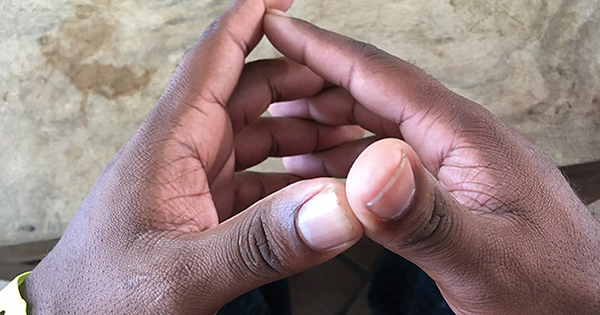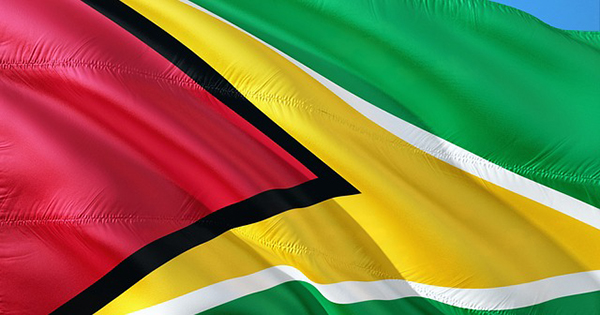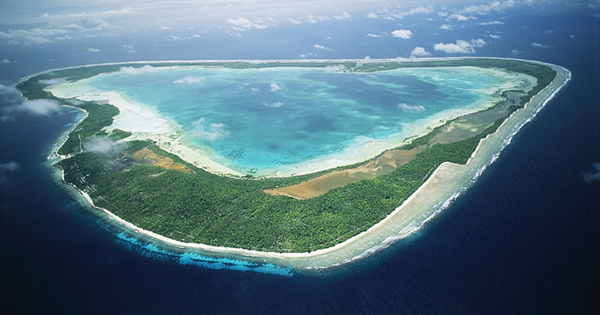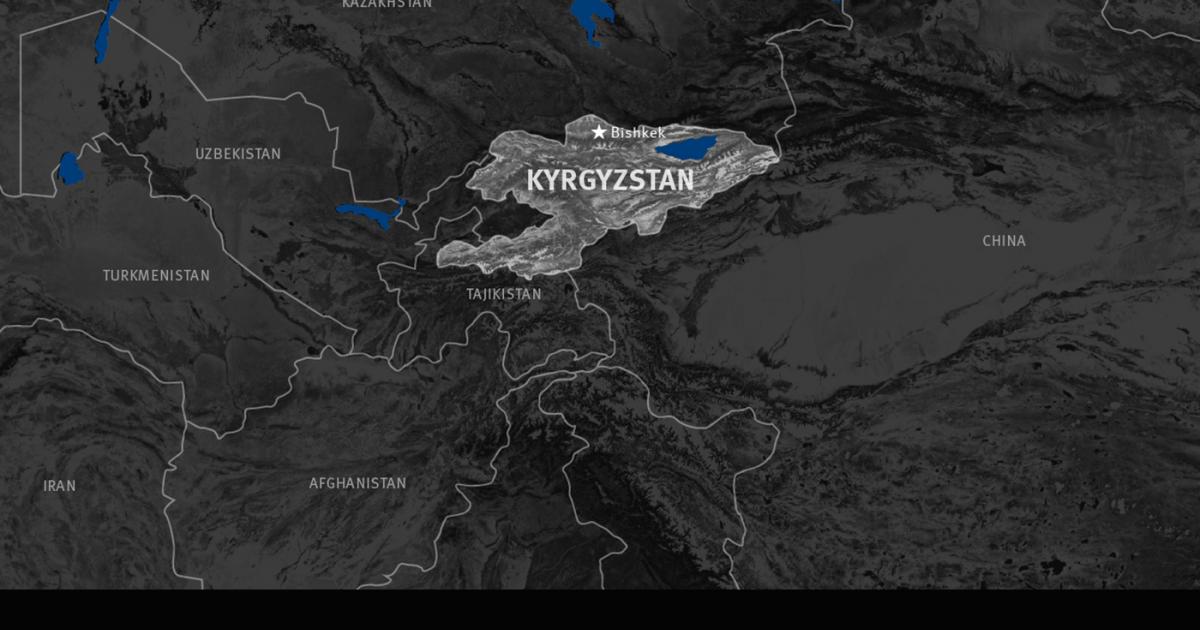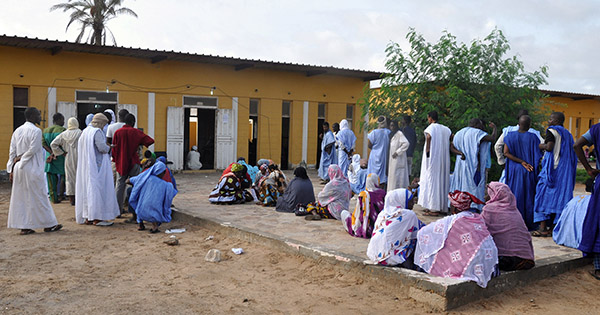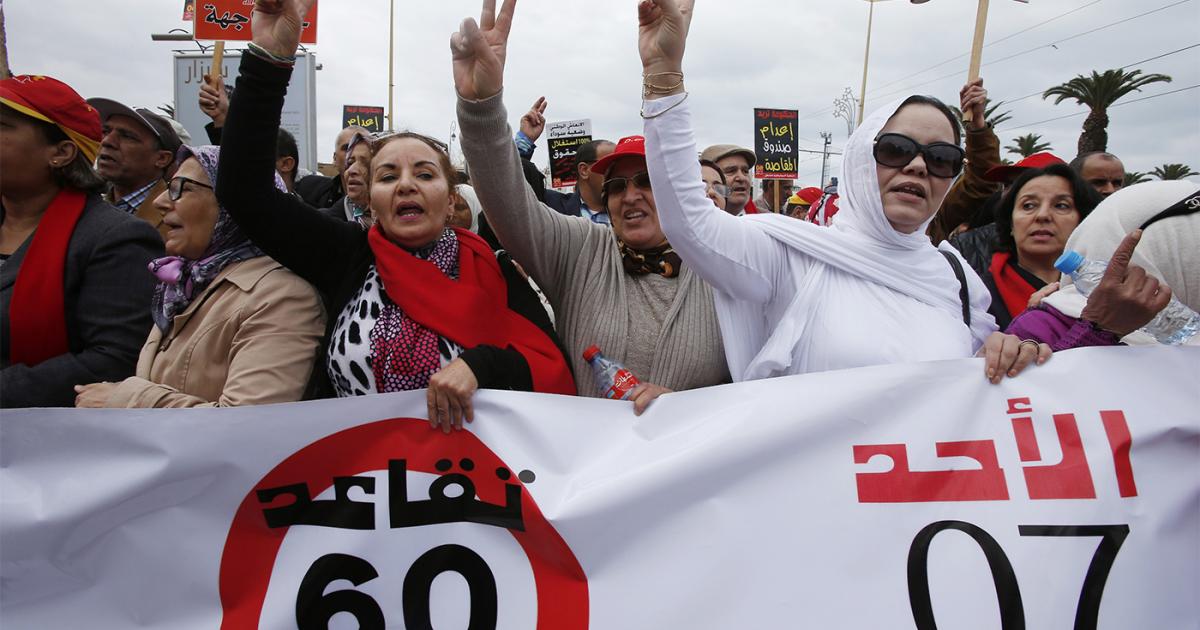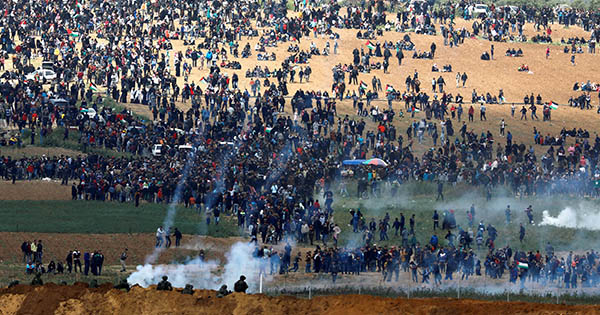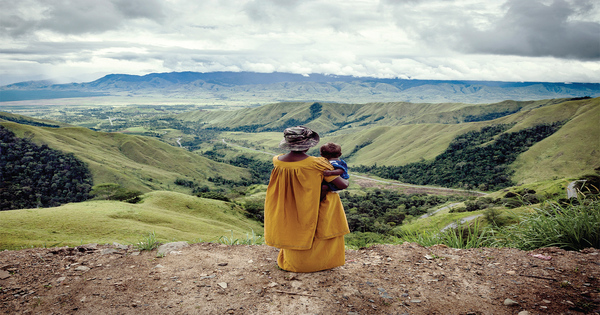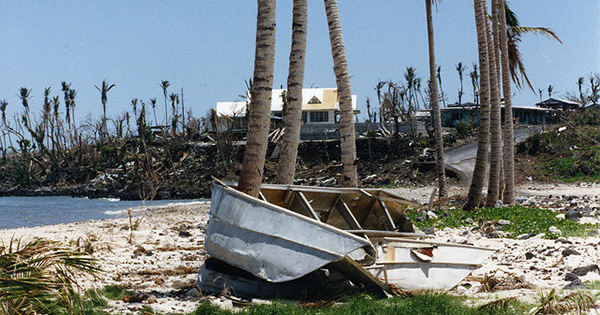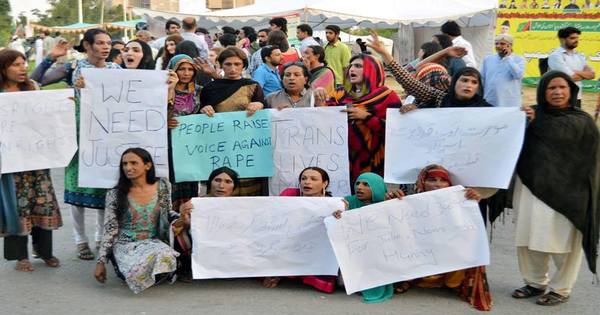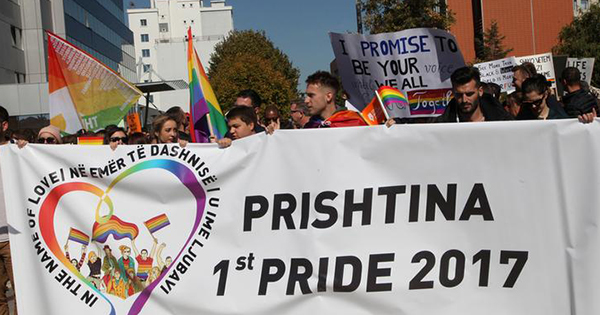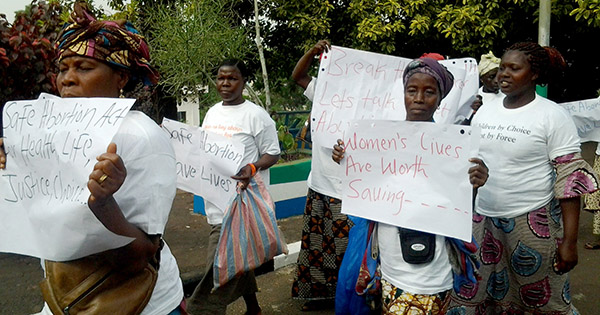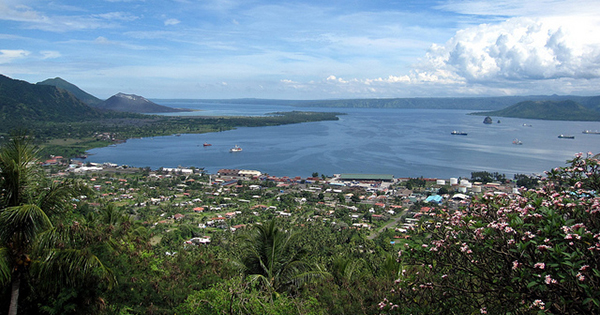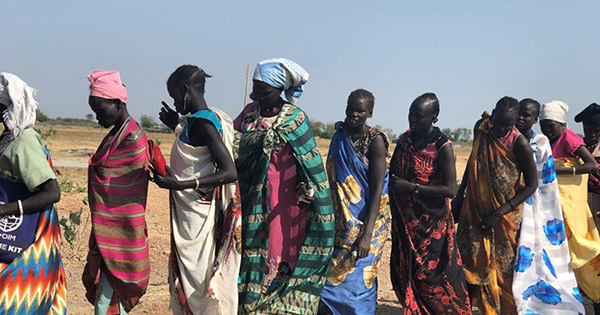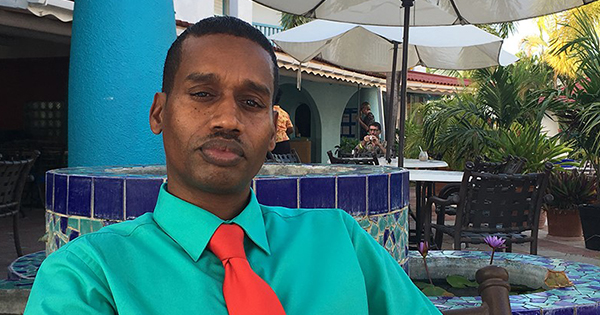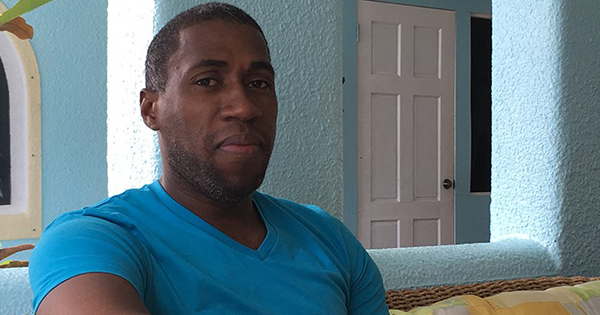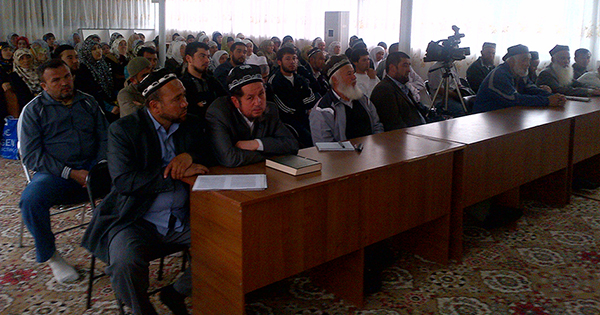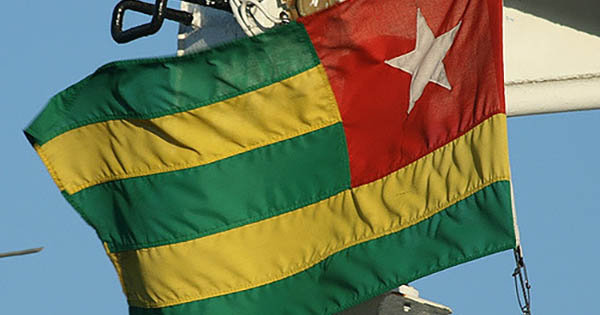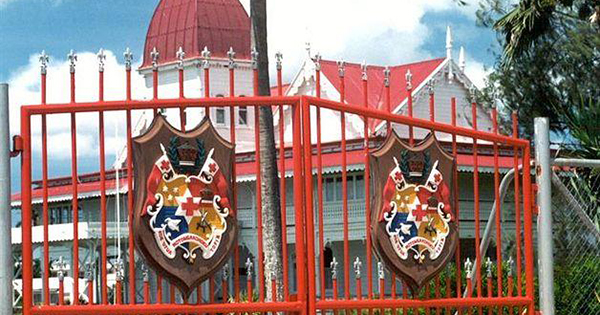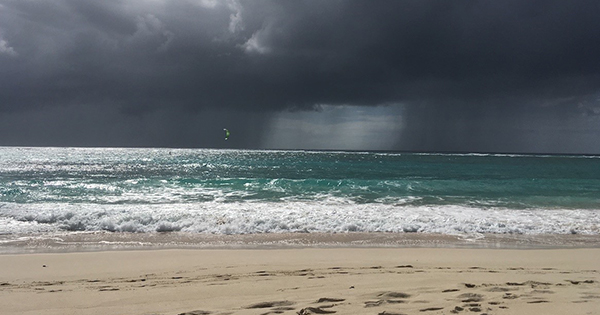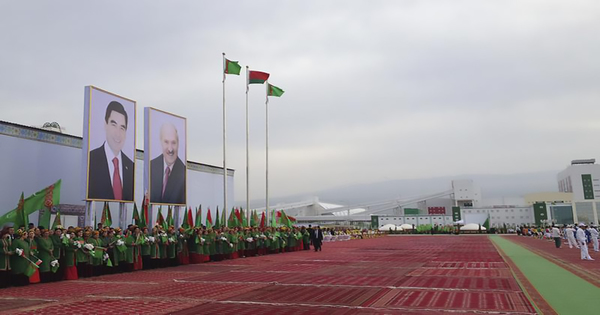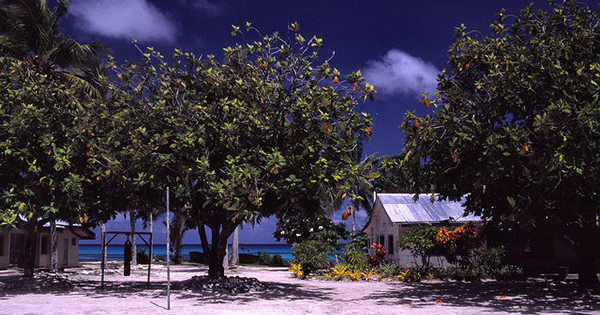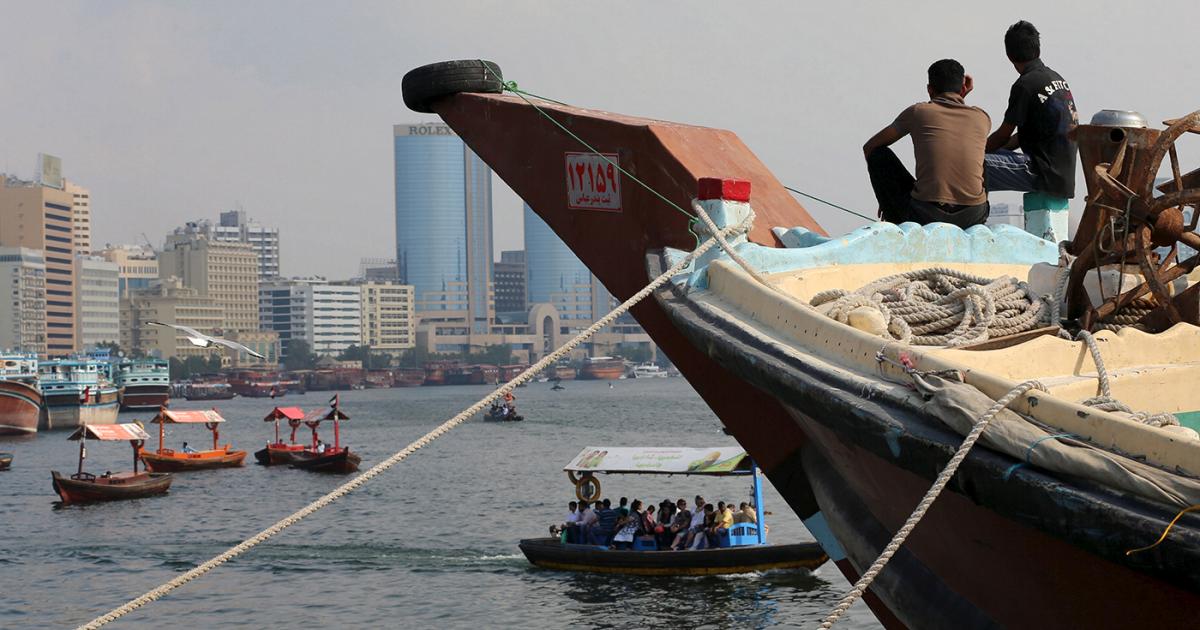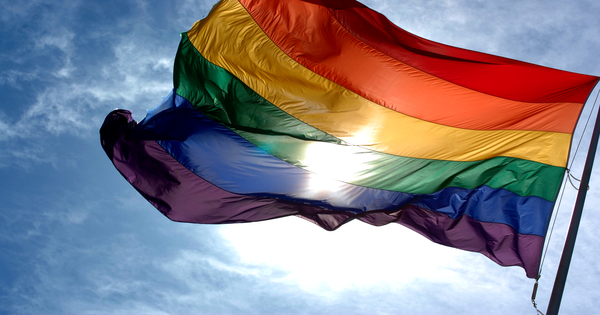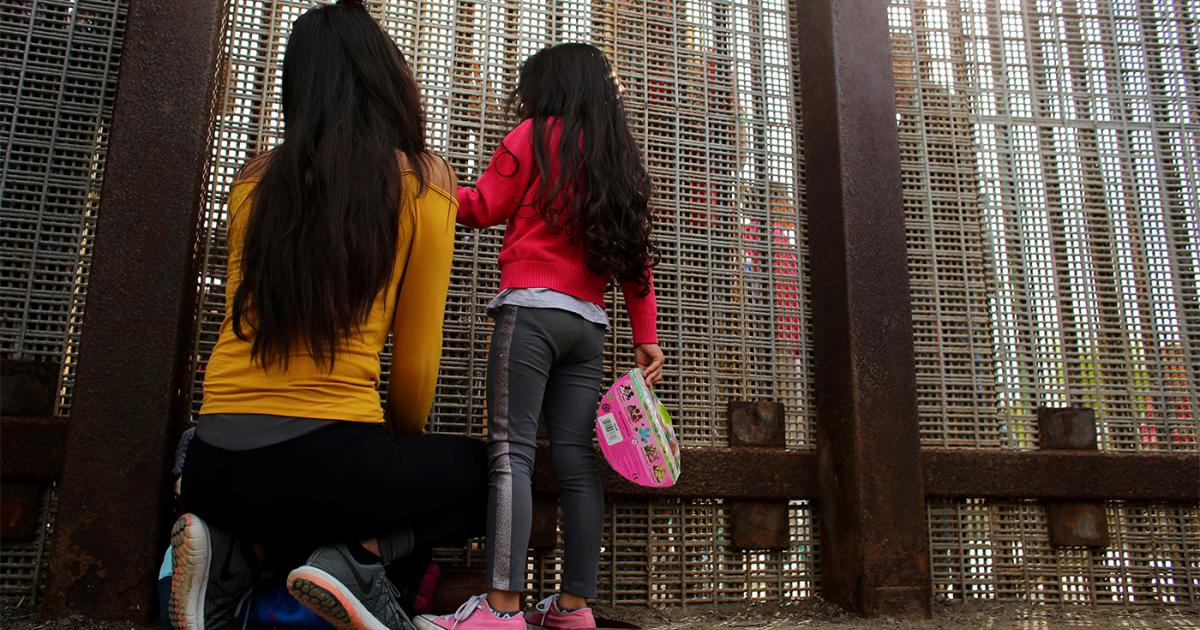In February 2018 Afghanistan adopted a new penal code that explicitly criminalizes consensual same-sex relations. More »
×Afghanistan
In February 2018 Afghanistan adopted a new penal code that explicitly criminalizes consensual same-sex relations. The penal code punishes musaheqeh (sexual relations between women) with up to one year in prison. It punishes sodomy, defined as “penetration of a male sexual organ into a female or a male anus,” with up to two years in prison. Under the previous penal code, “pederasty,” not further defined, was criminalized, as was zina (all sex outside of marriage).
Same-sex relations are punishable under article 338 of the penal code by up to two years in prison. More »
×Algeria
Same-sex relations are punishable under article 338 of the penal code by up to two years in prison.
An Algerian court on September 3, 2020 sentenced two men to prison terms and 42 others to suspended terms after mass arrests at what the police alleged was a “gay wedding.” The court convicted the 44 of “same-sex relations,” “public indecency,” and “subjecting others to harm by breaking Covid-19-related quarantine measures.” Two men were sentenced to three years in prison and a fine, and the others to a one-year suspended sentence.
In February 2021, a new penal code came into effect in Angola that no longer criminalizes consensual same-sex conduct, scrapping colonial-era provisions that characterized homosexuality as “vices against nature.” The new penal code also prohibits discrimination on the grounds of sexual orientation. More »
×Angola
In February 2021, a new penal code came into effect in Angola that no longer criminalizes consensual same-sex conduct, scrapping colonial-era provisions that characterized homosexuality as “vices against nature.” The new penal code also prohibits discrimination on the grounds of sexual orientation.
Angola’s criminal code also includes the crime of injúria, which penalizes offenses to a person’s “honor, good name, or consideration;” the crime of difamação, defined as imputing “offensive facts or judgments” to a person; and the crime of calúnia, defined as knowingly imputing false “offensive facts or judgments” to a person. Under the new penal code, these crimes, which can carry prison sentences and are incompatible with international law obligations on the right to freedom of expression, carry higher sentences when they are perpetrated on the basis of someone’s sexual orientation.
Antigua and Barbuda’s 1995 Sexual Offences Act criminalizes the act of “buggery” between consenting adults with a sentence of 15 years in prison, and acts of “serious indecency” with up to 5 years. Human Rights Watch has documented anti-LGBT violence and threats faced by gay men and trans women in Antigua and Barbuda. More »
×Antigua and Barbuda
Antigua and Barbuda’s 1995 Sexual Offences Act criminalizes the act of “buggery” between consenting adults with a sentence of 15 years in prison, and acts of “serious indecency” with up to 5 years. Human Rights Watch has documented anti-LGBT violence and threats faced by gay men and trans women in Antigua and Barbuda.
The Royal Police Force of Antigua and Barbuda has undergone LGBTI sensitization training to better protect the rights of LGBTI people, facilitated by Caribbean activists.
In 2016, following its UN Universal Periodic Review, the minister of social transformation announced that she was willing to introduce to Cabinet a recommendation to repeal the buggery laws, but as of 2021, they remain in place in Antigua and Barbuda.
In November 2019, the Eastern Caribbean Alliance for Diversity and Equality announced it planned to launch a legal challenge against the criminalization of private, consensual same-sex sexual activity.
In 2010, Argentina became the first Latin American country to legalize same-sex marriage at a national level. The Civil Marriage Law allows same-sex couples to enter civil marriages and affords them the same legal marital protections as different-sex couples, including adoption rights and pension benefits. Since 2010 more than 20,000 same-sex couples have married nationwide. More »
×Argentina
In 2010, Argentina became the first Latin American country to legalize same-sex marriage at a national level. The Civil Marriage Law allows same-sex couples to enter civil marriages and affords them the same legal marital protections as different-sex couples, including adoption rights and pension benefits. Since 2010 more than 20,000 same-sex couples have married nationwide.
In 2012, Argentina passed a Gender Identity Law, respecting self-identification. It allows anyone to change the gender and name in their identity card and birth certificate through a simple administrative procedure.
In September 2020, President Alberto Fernández issued a decree establishing that at least one percent of employees in the federal government should be transgender people.
LGBT people in Armenia face harassment, discrimination, and violence. Public debate around the ratification of the Council of Europe Convention on Preventing and Combating Violence Against Women and Domestic Violence (Istanbul Convention) descended to hateful and derogatory speech against LGBT people by some public officials, who falsely suggested that the convention aims to promote “LGBT propaganda” and legitimize same-sex marriage. More »
×Armenia
LGBT people in Armenia face harassment, discrimination, and violence. Public debate around the ratification of the Council of Europe Convention on Preventing and Combating Violence Against Women and Domestic Violence (Istanbul Convention) descended to hateful and derogatory speech against LGBT people by some public officials, who falsely suggested that the convention aims to promote “LGBT propaganda” and legitimize same-sex marriage.
PINK Armenia, an LGBT rights group, documented 22 incidents of physical attacks or threats to attack based on sexual orientation or gender identity in 2020.
Fear of discrimination and public disclosure of their sexual orientation and humiliation prevents many LGBT people from reporting crimes. In August 2020, the Court of Appeal ruled there had not been a proper investigation into a violent homophobic attack in 2018 against a group of LGBT activists, which left at least six activists injured. The court ordered a reinvestigation.
Openly gay men fear for their physical security in the military, and some seek exemption from serving in the army. An exemption, however, requires a medical conclusion finding them “psychologically or mentally unfit” to serve. A finding of “psychological or mental disorder” could be an obstacle to employment or obtaining a driver’s license. In January 2019, Artak (Adam) Arakelyan, 19, a queer activist, was subjected to abuse and discrimination at a military draft board, where officers variously used homophobic slurs to describe him, mocked him, and threatened to out him to his father. Various law enforcement agencies rejected Arakelyan’s request for an investigation into the incident.
Three Australian states passed bills in 2020 and 2021 prohibiting conversion therapy aimed at changing a person’s sexual orientation or gender identity. In August, Queensland issued a law prohibiting health service providers from performing conversion therapy, defined as “a practice that attempts to change or suppress a person's sexual orientation or gender identity,” on any person. More »
×Australia
Three Australian states passed bills in 2020 and 2021 prohibiting conversion therapy aimed at changing a person’s sexual orientation or gender identity. In August, Queensland issued a law prohibiting health service providers from performing conversion therapy, defined as “a practice that attempts to change or suppress a person’s sexual orientation or gender identity,” on any person. The bill carries a sentence of up to 18 months in prison. In September, the Australian Capital Territory (ACT) passed a law providing 12 months’ imprisonment and a fine of 150 penalty units (currently valued at AU$33,000 or US$25,000) for any person who conducts a “sexuality or gender identity conversion practice,” defined as “a treatment or other practice the purpose, or purported purpose, of which is to change a person’s sexuality or gender identity,” on a child. In February 2021, Victoria passed a law that provides for up to six years in prison for any person who engages in a “change or suppression practice” towards another person on the basis of sexual orientation or gender identity, with or without that person’s consent, if it causes physical injury or mental harm, and 10 years if the physical or mental harm is substantial and protracted.
Austria conducted its first same-sex marriages on January 1, 2019. More »
×Austria
Austria conducted its first same-sex marriages on January 1, 2019. Marriage equality came to Austria following a December 2017 Constitutional Court ruling that the government and Parliament had until January 1, 2019, to introduce legislation allowing same-sex couples to marry. The government took no action to pass legislation, but in accordance with the court ruling, in the absence of government action, the law on civil marriage law is now to be automatically read as if amended.
In April 2020, police detained around 14 gay men and transgender women, claiming they engaged in illegal sex work. More »
×Azerbaijan
In April 2020, police detained around 14 gay men and transgender women, claiming they engaged in illegal sex work. According to Nefes LGBT Azerbaijan Alliance, an independent group, in some cases police detained people after luring them for dates through mobile apps. Police forced some of them to undergo unlawful, forced testing for HIV and other sexually transmitted diseases. Courts fined two for “hooliganism” and handed jail sentences of up to 15 days to another three for resisting police, then fined and released them upon appeal. No confirmed information is available regarding sanctions against the other nine. In May 2020, a leaked video of a zoom meeting among political parties revealed politicians making hateful comments about LGBT people. There were several violent attacks against transgender people in the capital Baku in 2020.
Although no law explicitly criminalizes same-sex relations, authorities have used vague penal code provisions against “indecency” and “immorality” to target sexual and gender minorities. There is no law that prohibits discrimination on the grounds of gender identity or sexual orientation. More »
×Bahrain
Although no law explicitly criminalizes same-sex relations, authorities have used vague penal code provisions against “indecency” and “immorality” to target sexual and gender minorities. There is no law that prohibits discrimination on the grounds of gender identity or sexual orientation.
In December 2018, Bahrain amended its labor law to ban discrimination based on sex, origin, language or creed, and sexual harassment in the workplace, but the law does not refer to sexual orientation or gender identity.
Section 377 of the Bangladeshi penal code punishes “carnal intercourse against the order of nature” by up to life imprisonment. The government has taken some positive steps in recent years, such as declaring legal recognition of a third gender category for hijras. More »
×Bangladesh
Section 377 of the Bangladeshi penal code punishes “carnal intercourse against the order of nature” by up to life imprisonment. The government has taken some positive steps in recent years, such as declaring legal recognition of a third gender category for hijras. However, implementation has been fraught as mandatory medical examinations have resulted in abuse. Sexual and gender minorities continue to fear for their safety amid a climate of impunity for attacks on minorities by religious extremists. In November 2020, a religious charity in Dhaka opened an Islamic school for hijras, which activists heralded as “a beacon of hope” for the community.
Chapter 154 of the 1992 Sexual Offences Act punishes any person who commits “buggery” with life imprisonment, and any person who commits an “act of serious indecency” with 10 years in prison. More »
×Barbados
Chapter 154 of the 1992 Sexual Offences Act punishes any person who commits “buggery” with life imprisonment, and any person who commits an “act of serious indecency” with 10 years in prison. In 2016, then-Prime Minister Freundel Stuart of Barbados claimed the Sexual Offences Act only applies in cases of non-consensual sex, but the buggery laws make no distinction between consensual and non-consensual sex, and their application is not conditioned on lack of consent. Barbados rejected Universal Periodic Review recommendations in 2018 to decriminalize same-sex acts. In 2018, three LGBT activists in Barbados filed a challenge to the buggery laws with the Inter-American Commission on Human Rights.
In November 2019, the Eastern Caribbean Alliance for Diversity and Equality announced it planned to launch a legal challenge against the criminalization of private, consensual same-sex sexual activity.
In July 2020, Prime Minister Mia Mottley denounced discrimination on the basis of gender and sexual orientation in response to a version of the Remote Employment Act, 2020 – a bill enabling foreigners to live and work in Barbados for one year – that discriminated against same-sex couples.
In August 2020, Barbados passed the Employment (Prevention of Discrimination) Act providing protections in the workplace, including on the basis of sex, sexual orientation, and other characteristics.
Belarus’ 2017 Law on the Protection of Children from Information Harmful to their Health and Development may be used to restrict dissemination of neutral or positive information about lesbian, gay, bisexual, and transgender (LGBT) people as “discrediting the institution of the family.” More »
×Belarus
Belarus’ 2017 Law on the Protection of Children from Information Harmful to their Health and Development may be used to restrict dissemination of neutral or positive information about lesbian, gay, bisexual, and transgender (LGBT) people as “discrediting the institution of the family.” In September 2020, a leaked document signed by health ministry officials suggested the government was considering imposing civil and criminal penalties for disseminating “information that discredits the institution of family and marriage.”
In 2019, a court in Minsk recognized an attack on a filmmaker as a hate-motivated crime, sentencing the perpetrator to one-and-a-half years of restriction of liberty, a sentence similar to house-arrest. Recognition of the hate motive in the attack on the filmmaker, who had been working on an LGBT-themed documentary, signals progress for accountability and justice for LGBT people in Belarus.
In 2016 the Belize Supreme Court became the first Commonwealth Caribbean Court to hold that laws that criminalize same-sex intimacy were unconstitutional, affirming the rights of LGBT people in Belize to dignity, privacy, and equality before the law. More »
×Belize
In 2016 the Belize Supreme Court became the first Commonwealth Caribbean Court to hold that laws that criminalize same-sex intimacy were unconstitutional, affirming the rights of LGBT people in Belize to dignity, privacy, and equality before the law. The court struck down Section 53 of the criminal code, which outlawed “carnal intercourse against the order of nature,” and reduced the scope of Section 53 by excluding sexual activity taking place in private between consenting adults. The Court of Appeal reaffirmed the ruling in December 2019, stating unequivocally that the constitutional prohibition on sex discrimination includes discrimination on the basis of sexual orientation.
In 2010, Bolivia passed a law that provides legal protection against discrimination on the basis of sexual orientation and gender identity. More »
×Bolivia
In 2010, Bolivia passed a law that provides legal protection against discrimination on the basis of sexual orientation and gender identity.
In 2016, the Plurinational Assembly passed a law that allows people to revise the gender listed on their identification documents without judicial approval or sex reassignment surgery, though it requires a psychological exam. In November 2017, the Constitutional Court ruled that revision of gender did not grant the right to marry a person of the same biological sex.
In December 2020, after a two-year legal battle, the national civil registry complied with a court order and registered the first same-sex union in the country. The country’s constitutional court will review the court order in 2021, a decision which may impact all same-sex couples in the country who seek to register their union.
The second-ever Sarajevo Pride march took place in August 2020. The Sarajevo Open Center (SOC), a lesbian, gay, bisexual, transgender, and intersex (LGBTI) and women’s rights group, informed Human Rights Watch that it observed an increase in online threats against activists around the time of the march. More »
×Bosnia and Herzegovina
The second-ever Sarajevo Pride march took place in August 2020. The Sarajevo Open Center (SOC), a lesbian, gay, bisexual, transgender, and intersex (LGBTI) and women’s rights group, informed Human Rights Watch that it observed an increase in online threats against activists around the time of the march. In the context of the Covid-19 lockdown, SOC documented several cases of parental violence toward LGBTI children.
In June 2019, following several delays and postponements, Botswana’s High Court heard a case challenging the constitutionality of laws prohibiting consensual same-sex conduct. More »
×Botswana
In June 2019, following several delays and postponements, Botswana’s High Court heard a case challenging the constitutionality of laws prohibiting consensual same-sex conduct. Three judges voted unanimously to revoke the laws, finding them discriminatory toward gay people and in violation of Botswana’s constitutional protections on privacy and individual liberty. The court, moreover, found that sodomy laws serve no public interest and that culture may not justify violation of universal rights. The government appealed the ruling.
In October 2017, in ND v. Attorney General of Botswana and Another, Botswana’s High Court had ruled that a transgender man should be allowed to hold official documents that reflect his gender identity, the culmination of a seven-year case for legal recognition supported by the Southern Africa Litigation Centre. The Botswana Ministry of Health and Wellness in a 2017 report recognized the need for a legal gender recognition procedure, stating: “Given the practical challenges and the risk of rights violations when individuals have identity documents ‘mismatched’ with their gender identity, review section 16 of the National Registration Act with the aim of ensuring transgender and intersex persons are able to change the gender marker on their identity cards.”
President Jair Bolsonaro has a long history of anti-LGBT comments as well as vocal opposition to comprehensive sexuality education on the grounds that it constitutes “early sexualization.” The president and members of his cabinet continue to peddle such rhetoric. More »
×Brazil
President Jair Bolsonaro has a long history of anti-LGBT comments as well as vocal opposition to comprehensive sexuality education on the grounds that it constitutes “early sexualization.” The president and members of his cabinet continue to peddle such rhetoric. In 2020, President Bolsonaro accused the World Health Organization of incentivizing homosexuality through its sexuality education guidelines, while the Minister of Education denounced sexuality education and attributed homosexuality in young people to “maladjusted families.”
President Bolsonaro and other public officials subscribe to the notion that children are being “indoctrinated,” including by teachers, with so-called “gender ideology,” a vacuous catch-all term intended to denote an ill-defined gay and feminist conspiracy to wreak havoc on traditional values. For example, upon taking office, Damares Alves, the Minister of Women, Family, and Human Rights, decried the “ideological indoctrination” of children and adolescents and said, in a rebuke of the notion of gender, that “girls will be princesses and boys will be princes.”
Hundreds of bills are pending or have been approved in municipal and state legislatures and in Congress that aim to ban “gender ideology” or “indoctrination.” In 2020, Brazil’s Supreme Court struck down a series of those laws. In its decisions striking down laws from Paraná and Goiás, the court ruled that municipalities cannot override national education plans and also found that the municipal bans violated the rights to equality, education, and freedom of expression. In response, in May 2020, Bolsonaro vowed to send a bill banning “gender ideology” to the National Congress, but has not yet done so.
In January 2020, the Supreme Court upheld freedom of expression and vacated a ruling by a Rio de Janeiro judge ordering Netflix to take down a special featuring a “gay Jesus.” In May, the Court revoked a ban enacted by the federal government on men who had sexual relations with other men donating blood.
Between January and June 2020, the national Human Rights Ombudspersons Office received 1,134 complaints of violence, discrimination, and other abuses against lesbian, gay, bisexual, and transgender (LGBT) persons.
On April 3, 2019, Brunei’s Syariah Penal Code (2013) went into effect. The draconian law punishes liwat (any form of anal intercourse) or zina (sex outside of marriage) between partners of any sex, with death by stoning (articles 68, 69, 82, 85, 86). More »
×Brunei
On April 3, 2019, Brunei’s Syariah Penal Code (2013) went into effect. The draconian law punishes liwat (any form of anal intercourse) or zina (sex outside of marriage) between partners of any sex, with death by stoning (articles 68, 69, 82, 85, 86). Musahaqah (sexual conduct between women) is punishable with up to 40 strokes with whips and prison terms of up to 10 years (article 92). The penal code also criminalizes nonconforming gender expression, punishing “any man who dresses and poses as a woman or any woman who dresses and poses as a man in any public place”
(article 198) with prison time and a fine. “Indecent behaviour” in public, which includes any act that could “bring bad influence” (article 197), is also prohibited. While some legal systems derived from Islamic scriptures only apply to Muslims, most of the articles in the Syariah Penal Code are applicable to both Muslims and non-Muslims (article 3).
When the imposition of this new law caused international outrage, Sultan Hassanal Bolkiah announced that the country’s de facto moratorium on the death penalty, which has been in effect for two decades, would remain in place. The moratorium, while welcome, remains subject to political whim and fails to address the other forms of torture and cruel, inhuman and degrading treatment written into the law. The harshness of the provisions ensures that with or without enforcement, the law will serve to terrorize and silence LGBT individuals in Brunei.
Burundi punishes consensual same-sex sexual relations between adults with up to two years in prison under Article 567 of the penal code. Article 29 of the Constitution of Burundi explicitly bans same-sex marriage. More »
×Burundi
Burundi punishes consensual same-sex sexual relations between adults with up to two years in prison under Article 567 of the penal code. Article 29 of the Constitution of Burundi explicitly bans same-sex marriage.
In August, President Evariste Ndayishimye made a televised speech in which he described homosexuality as a “curse” and claimed that gay people were responsible for Covid-19. He also sought to associate the political opposition with “support for homosexuality.”
Cameroon’s penal code punishes “sexual relations between persons of the same sex” with up to five years in prison. More »
×Cameroon
Cameroon’s penal code punishes “sexual relations between persons of the same sex” with up to five years in prison. Police and gendarmes continued to carry out arrests and harassment of people they believe to be lesbian, gay, bisexual or transgender (LGBT). According to Cameroonian LGBT rights organizations, at least six LGBT people were in prison as of February 2021 on homosexuality charges, including transgender women who were arrested on the basis of gender expression. In 2020, at least six people were subjected to forced anal examinations, including children under age 18. In 2019, the Cameroonian LGBT rights organizations Humanity First and Alternatives Cameroun documented 27 cases of arbitrary detention on the grounds of sexual orientation and gender identity, along with 200 cases of physical or sexual violence and 249 cases of extortion or blackmail.
In June 2018, the Senate passed Bill C-66, which expunges the records of individuals who were prosecuted because of their sexuality when same-sex conduct was criminalized in Canada. The bill follows Prime Minister Trudeau’s 2017 apology in the House of Commons for the historic mistreatment of sexual minorities by the Canadian government. More »
×Canada
In June 2018, the Senate passed Bill C-66, which expunges the records of individuals who were prosecuted because of their sexuality when same-sex conduct was criminalized in Canada. The bill follows Prime Minister Trudeau’s 2017 apology in the House of Commons for the historic mistreatment of sexual minorities by the Canadian government. In June 2019, the parliament’s standing committee on health published a report that, among other things, recommended the government collect data on sexual orientation and gender identity, apply an intersectional approach to policymaking, and amend the criminal code to eliminate an exemption for medically unnecessary “normalizing” surgeries on intersex children.
The Central African Republic has no blanket ban on same-sex conduct, but its criminal code is discriminatory, including sanctions on homosexual conduct – but not heterosexual conduct – in public. More »
×Central African Republic
The Central African Republic has no blanket ban on same-sex conduct, but its criminal code is discriminatory, including sanctions on homosexual conduct – but not heterosexual conduct – in public.
In 2017, Chad’s president signed into law a new Penal Code that, for the first time, prohibits consensual same-sex relations. More »
×Chad
In 2017, Chad’s president signed into law a new Penal Code that, for the first time, prohibits consensual same-sex relations. Article 354 of the new Penal Code punishes “sexual relations with a person of one’s sex” with three months to two years in prison and a fine.
A gender identity law took effect in December 2019. It allows transgender people over 14 years old to change their name and gender in the civil registry without undergoing surgery. Married people, however, must divorce before exercising their right to legal gender recognition. More »
×Chile
A gender identity law took effect in December 2019. It allows transgender people over 14 years old to change their name and gender in the civil registry without undergoing surgery. Married people, however, must divorce before exercising their right to legal gender recognition.
In January 2020, the Senate voted to consider a 2017 bill to legalize same-sex marriage and allow same-sex couples to adopt children and pursue other reproductive options. In October, a Committee in the Senate approved the majority of the articles in the bill. It remained pending at time of writing.
In June 2020, the Constitutional Court denied a petition filed by a lesbian couple who were married in Spain and have a child to have their marriage recognized in Chile. The court held that that Chilean law, in its denial of marriage rights to same-sex couples, does not discriminate.
In October 2019,the Chilean LGBT organization Movilh submitted a report to the Inter-American Commission on Human Rights documenting 23 cases of apparently bias-related police abuses against LGBT people amid social protests, including torture, robbery, and arbitrary arrests.
While China decriminalized homosexual conduct in 1997, it lacks laws protecting people from discrimination on the basis of sexual orientation or gender identity, and same-sex partnership is not legal. More »
×China
While China decriminalized homosexual conduct in 1997, it lacks laws protecting people from discrimination on the basis of sexual orientation or gender identity, and same-sex partnership is not legal. In March 2019, during the UN Human Rights Council’s Universal Periodic Review, China accepted recommendations to adopt legislation prohibiting discrimination based on sexual orientation and gender identity in education and employment, but China has taken no steps to advance such legislation. A National People’s Congress spokesperson said in August 2019 that China would not consider marriage equality.
In January 2020, a court in Beijing ruled that it was illegal for an e-commerce company to fire a woman when she took a leave of absence for gender-affirming surgery.
In June, a Zhejiang court accepted a case brought by a lesbian suing for custody and visitation rights of the children she had with her former partner whom she had married in the United States.
In August, organizers of the Shanghai Pride, one of China’s largest LGBT festivals, announced that they would cancel all activities and events indefinitely, citing the need to “protect the safety of all involved” amid shrinking space for civil society.
In recent years, authorities have taken several steps to recognize the rights of LGBT people. More »
×Colombia
In recent years, authorities have taken several steps to recognize the rights of LGBT people. In June 2015, the Justice Ministry issued a decree allowing people to revise the gender noted on their identification documents without prior judicial approval. In November 2015, the Constitutional Court ruled that Colombians cannot be barred from adopting a child because of their sexual orientation. In 2016, the court upheld the right of same-sex couples to marry.
Despite Colombia’s strong legal protections on the basis of sexual orientation and gender identity, the human rights ombudsperson has raised concerns about high levels of violence against lesbian, gay, bisexual, and transgender people.
In response to the Covid-19 pandemic, on April 8, 2020 the government of Bogotá established a gender-based quarantine. The mayor called on the authorities to respect transgender people’s gender identity in implementing the quarantine, but there were reports of some cases of police abuse against transgender and non-binary people. Bogotá scrapped its gendered quarantine starting on May 11.
The government of Cartagena also implemented a gender-based quarantine on April 13, 2020 and lifted it on May 11.
Comoros’s penal code punishes “impudent acts” or “acts against nature” with two to five years in prison and a fine. More »
×Comoros
Comoros’s penal code punishes “impudent acts” or “acts against nature” with two to five years in prison and a fine.
Cook Islands’ penal code punishes sodomy and “indecent acts between males” with five to seven years in prison. More »
×Cook Islands
Cook Islands’ penal code punishes sodomy and “indecent acts between males” with five to seven years in prison.
In 2016, Costa Rica requested that the Inter-American Court of Human Rights issue an interpretation of the right to privacy and the right to equal protection under the American Convention on Human Rights in connection with LGBT rights claims. More »
×Costa Rica
In 2016, Costa Rica requested that the Inter-American Court of Human Rights issue an interpretation of the right to privacy and the right to equal protection under the American Convention on Human Rights in connection with LGBT rights claims. In a landmark 2017 opinion, the court stated that all rights applicable to heterosexual couples should extend to same-sex couples. Then, in 2018, the Costa Rican Constitutional Court followed that opinion and ruled in favor of marriage equality. On May 26, 2020, a lesbian couple was the first same-sex couple to marry in Costa Rica, as marriage equality became legal in the country.
Côte d’Ivoire does not criminalize same-sex conduct, and the 2019 criminal code removed references to acts between members of the same sex as an aggravating factor in cases of public indecency. More »
×Côte d’Ivoire
Côte d’Ivoire does not criminalize same-sex conduct, and the 2019 criminal code removed references to acts between members of the same sex as an aggravating factor in cases of public indecency. An antidiscrimination provision in Côte d’Ivoire’s new constitution, promulgated in January 2017, does not include protection against discrimination on grounds of sexual orientation. Incidents of discrimination against LGBT persons, including physical assaults, are common. A 2019 marriage law explicitly bans marriage between people of the same sex.
Article 42 of the Cuban Constitution prohibits discrimination on the basis of sexual orientation and gender identity. However, many LGBT people suffer violence and discrimination, particularly in the country’s interior. More »
×Cuba
Article 42 of the Cuban Constitution prohibits discrimination on the basis of sexual orientation and gender identity. However, many LGBT people suffer violence and discrimination, particularly in the country’s interior. In its 2020 report on Cuba, the Inter-American Commission on Human Rights (IACHR) noted allegations that police often refuse to investigate anti-LGBT attacks and that LGBT people have been fired or excluded from university education due to their sexual orientation or gender identity.
Following public protest, in 2018 the Cuban government removed language from the proposed new constitution that would have defined marriage as inclusive of same-sex couples. The government said that in March 2021, it will introduce a new version of the Family Code, which governs marriage, in the legislature for review, and then put the code to a vote in a referendum.
Like others in Cuba, LGBT people suffer abusive restrictions on freedom of speech and peaceful assembly imposed by the government. In May 2019, Cuban police arrested LGBT rights activists in an unauthorized Pride march in Havana.
Section 16 of the 1998 Sexual Offences Act punishes same-sex conduct between two consenting adults with 10 years in prison, and Section 14 punishes any person who commits “gross indecency” with 5 years in prison. More »
×Dominica
Section 16 of the 1998 Sexual Offences Act punishes same-sex conduct between two consenting adults with 10 years in prison, and Section 14 punishes any person who commits “gross indecency” with 5 years in prison. The law specifies that if a person is convicted of “buggery,” “the Court may order that the convicted person be admitted to a psychiatric hospital for treatment.”
In July 2019, a gay man filed a case in Dominica’s High Court challenging the constitutionality of the buggery law.
On June 13, 2019, Ecuador’s highest court ruled to recognize same-sex marriage, declaring the country’s marriage legislation discriminatory and unconstitutional and buttressing its argument with the Inter-American Court of Human Rights’ landmark 2017 opinion. In July 2019, the Civil Registry registered the first same-sex marriage. More »
×Ecuador
On June 13, 2019, Ecuador’s highest court ruled to recognize same-sex marriage, declaring the country’s marriage legislation discriminatory and unconstitutional and buttressing its argument with the Inter-American Court of Human Rights’ landmark 2017 opinion. In July 2019, the Civil Registry registered the first same-sex marriage. Since 2008, civil unions had been recognized but did not accord the full range of rights enjoyed by married couples, including the ability to adopt children.
In May 2018, Ecuador’s Constitutional Court ruled that a child born in Ecuador with two British mothers should be registered as an Ecuadorean citizen, and that the registry office should record the names of both mothers as parents. In October 2018, a family judge in Quito ruled in favor of a 9-year-old girl and her parents who were requesting a change of name and gender marker in child’s identity document to match her gender identity. The Civil Registry appealed the decision. In 2019, the child’s parents appealed to the Constitutional Court, but the court had not yet ruled on the case at the time of writing.
On August 25, 2020, the National Assembly approved a draft health code. The health bill, which President Lenin Moreno vetoed, included language prohibiting conversion therapy, echoing a criminal code prohibition that bans any attempt to change a person’s sexual orientation or gender identity. It would have also protected intersex children by prohibiting medical procedures that violate the personal integrity of those who have not reached puberty.
Egypt continues to arbitrarily arrest and detain people based on their sexual orientation or gender identity and subject them to torture and ill-treatment in detention, including forced anal examinations. More »
×Egypt
Egypt continues to arbitrarily arrest and detain people based on their sexual orientation or gender identity and subject them to torture and ill-treatment in detention, including forced anal examinations.
The National Security Agency in August 2020 arrested four witnesses to a high-profile 2014 gang rape case (known as the Fairmont case), and two of their acquaintances, weeks after independent women's rights activists exposed the case online. Authorities had encouraged witnesses to the rape to come forward, but then accused them of consensual same-sex sexual conduct, “inciting debauchery,” personal drug use, and “misuse of social media.”
The authorities subjected two men arrested in the case to drug testing and forced anal examinations, a form of torture and sexual assault which Egyptian authorities routinely carry out to seek “proof” of same-sex conduct. Police unlawfully searched the men’s phones and, based on private photos they found, detained them for allegedly engaging in same-sex conduct. Pro-government media subjected them to a coordinated smear campaign. They were released pending investigation in January, but charges against them have not been dropped.
In June 2020, Sarah Hegazy, an LGBT rights and feminist activist, took her own life in exile in Canada. Hegazy left Egypt out of fear for her life after authorities detained and subjected her to ill-treatment in prison for three months in 2017.
In March 2020, during its third Universal Periodic Review at the UN Human Rights Council, Egypt rejected recommendations by several states to end arrests and discrimination based on sexual orientation and gender identity. Egypt responded that it “does not recognize the terms mentioned in this recommendation.”
For several months, Egyptians living with HIV, including gay men, faced obstacles to accessing HIV treatment as they feared retrieving their medication from fever hospitals, the only centers where people living with HIV can access lifesaving medications, after the government designated them as treatment centers for Covid-19.
LGBT people are targets of violence by police, gangs, and others. Between October 2019 and April 2020 alone, at least seven trans women and two gay men were murdered in El Salvador, with details in the cases suggesting the killers had been motivated by hatred based on the victims’ gender identity or sexual orientation. More »
×El Salvador
LGBT people are targets of violence by police, gangs, and others. Between October 2019 and April 2020 alone, at least seven trans women and two gay men were murdered in El Salvador, with details in the cases suggesting the killers had been motivated by hatred based on the victims’ gender identity or sexual orientation. Official statistics released in January 2020 showed 692 cases of violence against LGBT and intersex people from January 2015 to June 2019. In May 2019, the Ombudsperson’s Office published a report documenting 19 unsolved murders of LGBT people, primarily transgender women, between 2009 and 2016.
In July 2020, three police officers were found guilty in connection with the death of Camila Díaz Córdova, a transgender woman deported from the United States. They were given 20-year prison sentences. It was a landmark case, delivering El Salvador’s first conviction for the killing of a transgender person, but the judge dismissed charges qualifying the killing as an aggravated offense under a penal code provision on hate crimes.
In June 2019, President Nayib Bukele dissolved the Secretariat of Social Inclusion, within which the Directorate on Sexual Diversity was based, and subsumed the directorate into an existing Gender Unit in the Ministry of Culture, renamed the Gender and Diversity Unit. LGBT activists criticized the move, protesting that few of their grave concerns regarding safety and discrimination could be adequately addressed under the ambit of culture.
Salvadoran law does not provide for a rights-based procedure by which transgender people can change their names and gender markers on official documents, and individuals must petition the courts to do so. In April 2019, a judge in Zacatecoluca ruled to allow a transgender woman to change her name and gender marker on her identity document.
Eritrea’s 2015 penal code punishes homosexual conduct with five to seven years in prison. More »
×Eritrea
Eritrea’s 2015 penal code punishes homosexual conduct with five to seven years in prison.
A colonial-era law criminalizes “sodomy,” with an unspecified sentence. In spite of this law, lesbian, gay, bisexual, and transgender (LGBT) activists successfully held the first ever Eswatini Pride event in June 2018, with hundreds marching in the streets of Mbabane in support of LGBT equality. More »
Ethiopia’s criminal code punishes homosexual acts with up to 15 years in prison. More »
×Ethiopia
Ethiopia’s criminal code punishes homosexual acts with up to 15 years in prison. In June 2019, a US-based LGBT tour company canceled a planned trip to Ethiopia after receiving various online threats from Ethiopians.
In July 2020, Gabon’s parliament voted to repeal a law, passed in July 2019, that had outlawed sexual relations between persons of the same sex for the first time. More »
×Gabon
In July 2020, Gabon’s parliament voted to repeal a law, passed in July 2019, that had outlawed “sexual relations between persons of the same sex” for the first time.
Consensual same-sex sexual activity for both men and women is illegal in The Gambia and carries a sentence of between 5 and 14 years in prison. More »
×Gambia
Consensual same-sex sexual activity for both men and women is illegal in The Gambia and carries a sentence of between 5 and 14 years in prison. In October 2014, then-President Yahya Jammeh signed into law an amendment to the Criminal Code which introduced a new offence of “aggravated homosexuality” punishable by life imprisonment. The amendment defines “aggravated homosexuality” to include serial offenders or persons with a previous conviction for homosexuality, persons who administer drugs or substances in order to have “unlawful carnal connection” with a person of the same sex, persons having same-sex relations with someone under the age of 18 or with a person who has a disability, or a person with HIV having same sex sexual relations.
Georgia’s 2014 Law on Elimination of All Forms of Discrimination enumerates sexual orientation and gender identity as grounds for protection, and Georgian law provides sanctions for hate crimes against LGBT people. However, in practice, LGBT people and LGBT rights activism in Georgia continue to face hostile social attitudes and discrimination. More »
×Georgia
Georgia’s 2014 Law on Elimination of All Forms of Discrimination enumerates sexual orientation and gender identity as grounds for protection, and Georgian law provides sanctions for hate crimes against LGBT people. However, in practice, LGBT people and LGBT rights activism in Georgia continue to face hostile social attitudes and discrimination.
Authorities refuse to allow transgender people to obtain legal gender recognition without sex-altering surgery. Lack of legal gender recognition represents a serious obstacle in the daily lives of transgender people in Georgia, including their ability to find jobs.
The economic fallout from Covid-19 exacerbated poor living conditions for transgender people, many of whom work in the informal sector. In April, transgender women held a protest asking for government assistance, as they lost their income and means to cover their rent. At the protest, a 19-year-old transgender woman attempted suicide by self-immolation in a desperate effort to draw attention to the lack of government social support for transgender people. Georgian human rights groups also criticized the government’s Covid-19 related Anti-Crisis Economic Plan for failure to address the social needs of transgender women and queer people, many of whom struggle financially due to family rejection and social opprobrium.
Ghana has taken substantial positive steps in its treatment of LGBT people. At least two government agencies, the Ghana Police Force and the Commission on Human Rights and Administrative Justice, have reached out to LGBT people and taken proactive steps to ensure their protection in state operations. On the other hand, Human Rights Watch has documented the impact of Ghana’s 1960 Criminal Offences Act, Section 104(1)(b), which criminalizes consensual same-sex conduct between adults and contributes to a climate of fear and violence for LGBT Ghanaians. More »
×Ghana
Ghana has taken substantial positive steps in its treatment of LGBT people. At least two government agencies, the Ghana Police Force and the Commission on Human Rights and Administrative Justice, have reached out to LGBT people and taken proactive steps to ensure their protection in state operations. On the other hand, Human Rights Watch has documented the impact of Ghana’s 1960 Criminal Offences Act, Section 104(1)(b), which criminalizes consensual same-sex conduct between adults and contributes to a climate of fear and violence for LGBT Ghanaians. Lesbians, bisexual women and transgender men in Ghana are frequently victims of domestic violence and coerced marriage. Homophobic comments by religious and traditional leaders in some cases incite violence towards people on the basis of real or imputed sexual orientation or gender identity. On February 11, 2021, Executive Secretary of the National Coalition for Proper Sexual Rights and Family Values, Moses Foh-Amoaning called on the government to shut down a newly established LGBT office in Accra. He has in the past been on several media platforms calling for the arrest and prosecution of LGBT people in Ghana.
Article 430 of Grenada’s Criminal Code of 1987 defines “any grossly indecent act” as a misdemeanor. Article 431 punishes “unnatural connexion” with a sentence of 10 years, a provision that has been interpreted in at least three cases to include consensual anal intercourse between same-sex persons. More »
×Grenada
Article 430 of Grenada’s Criminal Code of 1987 defines “any grossly indecent act” as a misdemeanor. Article 431 punishes “unnatural connexion” with a sentence of 10 years, a provision that has been interpreted in at least three cases to include consensual anal intercourse between same-sex persons.
In 2016, Grenadians voted down a referendum instituting protections from discrimination based on gender, in part due to fears that the referendum would open a legal path to same-sex marriage.
In November 2019, the Eastern Caribbean Alliance for Diversity and Equality announced it planned to launch a legal challenge against the criminalization of private, consensual same-sex sexual activity.
During the first four weeks of 2021, at least five gay and transgender people were reportedly killed in Guatemala. The spate of killings was, sadly, not out of the ordinary: in 2020, human rights ombudsperson Jordán Rodas said, at least 19 people known to be lesbian, gay, bisexual or transgender (LGBT) were murdered in Guatemala. He called on the Attorney General’s office to establish a special unit to investigate anti-LGBT hate crimes. More »
×Guatemala
During the first four weeks of 2021, at least five gay and transgender people were reportedly killed in Guatemala. The spate of killings was, sadly, not out of the ordinary: in 2020, human rights ombudsperson Jordán Rodas said at least 19 people known to be lesbian, gay, bisexual or transgender (LGBT) were murdered in Guatemala. He called on the Attorney General’s office to establish a special unit to investigate anti-LGBT hate crimes.
Guatemala has no comprehensive civil legislation protecting people from discrimination on the grounds of sexual orientation and gender identity. Employers, landlords, health care facilities, schools, and other public and private institutions face no penalty for discriminating. No law allows transgender people to change their name or gender marker on official documents.
The Life and Family Protection bill remains under consideration by Congress. The bill contains provisions that discriminate against LGBT people. It defines marriage as a union between a man and a woman and establishes that “freedom of conscience and expression” protects people from being “obliged to accept non-heterosexual conduct or practices as normal.” President Alejandro Giammattei has publicly supported this bill.
In June 2020, several lawmakers attempted to remove the ombudsperson from office for using a rainbow flag on social media to commemorate Pride month, and for releasing videos calling on the government to fulfill its international obligation to prevent anti-LGBT violence and discrimination.
Guinea’s penal code punishes undefined indecent acts or acts against nature with six months to three years in prison. More »
×Guinea
Guinea’s penal code punishes undefined indecent acts or acts against nature with six months to three years in prison.
Guyana criminalizes “acts of gross indecency” between men with two years in prison (article 352). The criminal code sentences any person convicted of “buggery” to life in prison (article 354). More »
×Guyana
Guyana criminalizes “acts of gross indecency” between men with two years in prison (article 352). The criminal code sentences any person convicted of “buggery” to life in prison (article 354). In November 2018, the Caribbean Court of Justice struck down a law that criminalized cross-dressing in public “for an immoral purpose,” stating that the law violated transgender people’s rights to equality and non-discrimination.
LGBT people suffer high levels of discrimination in Haiti. No comprehensive civil law protects against discrimination. More »
×Haiti
LGBT people suffer high levels of discrimination in Haiti. No comprehensive civil law protects against discrimination. A new penal code, issued in 2020, prescribes criminal penalties for discrimination, including when motivated by sexual orientation. The new penal code also makes any crime motivated by its target’s real or perceived sexual orientation an aggravated offense and punishes with up to life imprisonment any murder motivated by a victim’s sexual orientation.
Two anti-LGBT bills passed by the Senate in 2017 remain under consideration by the Chamber of Deputies. One adds homosexuality as a reason for denying a Certificat de Bonne Vie et Mœurs, a certificate of good standing required by many employers and universities as proof that a person has not committed a felony. The other bans same-sex marriage, establishing prison sentences of up to three years and a fine of about US$8,000 for “parties, co-parties and accomplices” to a same-sex marriage. It also bans any public support or advocacy for lesbian, gay, bisexual, and transgender rights.
In November 2019, Charlot Jeudy, a gay man who founded Haiti’s LGBTQ advocacy group Kouraj, was found dead at his home. As of February 2021, circumstances surrounding his death and the results of an autopsy remain publicly unknown.
LGBT people in Honduras are frequently the targets of violence and discrimination. They face violence from gangs, the national civil police and the military police, members of the public, and their own families, as well as extortion by gangs and discrimination in schools and in the workplace. More »
×Honduras
LGBT people in Honduras are frequently the targets of violence and discrimination. They face violence from gangs, the national civil police and the military police, members of the public, and their own families, as well as extortion by gangs and discrimination in schools and in the workplace.
Violence against LGBT individuals forces many to leave their homes, fleeing internally or leaving the country to seek asylum. Although a law provides higher penalties for bias-based crimes, including on the grounds of sexual orientation and gender identity, the Attorney General’s office told Human Rights Watch in September 2020 that no one has been convicted under the law.
In November 2020, the Inter-American Court of Human Rights heard the case of Vicky Hernández, a trans woman allegedly extrajudicially executed in 2009. In December 2018, the Inter-American Commission on Human Rights had found Honduras responsible for failing to investigate Hernández’s death. It submitted the case to the court in April 2019 due to Honduras’ lack of compliance with its recommendations, such as introducing comprehensive policies to map and prevent anti-LGBT violence and designing training programs on anti-LGBT violence for state security bodies.
Honduras bans same-sex marriage. The 2005 constitutional amendment prohibits recognizing marriage between people of the same sex, including same-sex marriages contracted in other countries. Honduras also bans adoption by same-sex couples.
In January 2021, Congress passed a constitutional amendment that increases the number of votes needed in Congress to amend the article of the constitution that prohibits same-sex marriage. It increases the votes needed from the current two-thirds majority of the legislature to three-quarters, making future reform of these provisions extremely difficult.
The Hungarian government actively undermines the rights of LGBT people. In May 2020, the parliament blocked the ratification of the Council of Europe Convention on Combating Violence Against Women and Domestic Violence, known as the Istanbul Convention, saying it “promotes destructive gender ideologies.” Also in May, a new law made it impossible for transgender or intersex people to legally change their gender, putting them at risk of harassment, discrimination, and even violence in daily situations when they need to use identity documents. More »
×Hungary
The Hungarian government actively undermines the rights of LGBT people. In May 2020, the parliament blocked the ratification of the Council of Europe Convention on Combating Violence Against Women and Domestic Violence, known as the Istanbul Convention, saying it “promotes destructive gender ideologies.” Also in May, a new law made it impossible for transgender or intersex people to legally change their gender, putting them at risk of harassment, discrimination, and even violence in daily situations when they need to use identity documents. Council of Europe Human Rights Commissioner Dunja Mijatovic called the law “a blow to the human dignity of trans people” and said it contradicted the case law of the European Court of Human Rights.
In December, the parliament, in which the ruling party has a qualified majority, adopted a constitutional amendment that states that only married couples will be eligible to adopt children, with the minister in charge of family policies able to make exceptions on a case-by-case basis. It effectively excludes same-sex couples, single people, and unmarried different-sex couples from adopting children.
The amendment includes language that stigmatizes transgender people, stating that “children have the right to their identity in line with their sex at birth” and rejects diversity and inclusivity by mandating that children’s upbringing should be “in accordance with the values based on our homeland’s constitutional identity and Christian culture.”
In 2020, the central government published the draft Transgender Persons (Protection of Rights) Rules and sought comments from civil society. More »
×India
In 2020, the central government published the draft Transgender Persons (Protection of Rights) Rules and sought comments from civil society. The text had been criticized for requiring a high burden of proof of gender identity, including a medical exam, for an applicant to change their legal gender. The law was unclear on a transgender person’s right to self-identify, which India’s Supreme Court recognized in a landmark judgment in 2014. Its provisions were contrary to international standards for legal gender recognition. As a result of that process, the rules, which were published in October 2020, removed the medical requirement and also instructed local governments to institute transgender welfare boards.
The Delhi Child Rights Commission in early 2021 recommended a ban on medically unnecessary “normalizing” surgeries on children born with intersex variations. This follows the southern state of Tamil Nadu banning such operations in 2019 after a court upheld the right to informed consent for intersex children. Notably, the Delhi Medical Council supported the rights of intersex children. The council wrote that it “agrees with the complainants that Differences of Sex Developments/Intersex (DSD) issues are (a) human rights issue as it pertains to bodily integrity and autonomy,” and “(s)urgical interventions and gender-related medical interventions for DSD that are not deemed medically necessary should be delayed until the patient can provide meaningful informed consent.”
In September, a petition in the Delhi High Court sought the right of same-sex couples to marry under the Hindu Marriage Act. The matter was pending at time of writing.
At least three high courts, in Mumbai, Telangana, and Patna, issued directives instructing local governments to support transgender people during Covid-19 pandemic-related lockdowns.
Indonesian authorities continued their years-long pattern of unlawfully apprehending LGBT people in private spaces. Indonesia’s central government has never criminalized same-sex behavior, but no national laws specifically protect LGBT people against discrimination. More »
×Indonesia
Indonesian authorities continued their years-long pattern of unlawfully apprehending LGBT people in private spaces. Indonesia’s central government has never criminalized same-sex behavior, but no national laws specifically protect LGBT people against discrimination.
Since the government-driven anti-LGBT crisis began in 2016, arbitrary police raids on private LGBT gatherings, assisted by militant Islamists, have derailed public health outreach efforts to vulnerable populations. Men who have sex with men had already experienced a spike in HIV rates in recent years. Authorities increasingly use Indonesia’s anti-pornography law as a pretext for police raids and prosecutions of LGBT people.
In May 2019, a former police brigadier filed a lawsuit against the central Java provincial police, claiming he had been fired for being gay. After conducting internal investigation, the provincial police said that the police brigadier violated ethics by engaging in “deviant sexual behavior.” A court rejected the man’s lawsuit against the police forces for unlawful firing. Another police officer came under investigation in April 2020 after photos of him with a male lover leaked on the internet. A transgender woman was brutally murdered in Jakarta the same month when assailants doused her with gasoline and burned her. Within 24 hours, police declared they would not pursue murder charges.
Under Iranian law, same-sex conduct is punishable by flogging and, for men, the death penalty. Although Iran permits and subsidizes sex reassignment surgery for transgender people, no law prohibits discrimination against them.
More »
×Iran
Under Iranian law, same-sex conduct is punishable by flogging and, for men, the death penalty. Although Iran permits and subsidizes sex reassignment surgery for transgender people, no law prohibits discrimination against them.
Iraq’s criminal code does not explicitly prohibit same-sex sexual relations, but Article 394 of the penal code makes it illegal to engage in extra-marital sex, a violation of the right to privacy that disproportionately harms LGBT people. More »
×Iraq
Iraq’s criminal code does not explicitly prohibit same-sex sexual relations, but Article 394 of the penal code makes it illegal to engage in extra-marital sex, a violation of the right to privacy that disproportionately harms LGBT people. Article 401 holds that any person who commits an “immodest act” in public can be imprisoned for up to six months, a vague provision that could be used to target sexual and gender minorities, although such cases have not been documented.
Over the years, authorities have not held accountable perpetrators, including security forces, of kidnappings, torture, and killings of people perceived as gay and transgender. A 2012 government committee established to address abuses against LGBT people took few tangible steps to protect them before disbanding.
In August 2019, an Israeli judge ruled that billboard companies cannot reject homophobic political advertisements after two companies denied space on the outside wall of a Jerusalem hotel to a far-right party, Noam. The ads linked gay people with child trafficking. More »
×Israel
In August 2019, an Israeli judge ruled that billboard companies cannot reject homophobic political advertisements after two companies denied space on the outside wall of a Jerusalem hotel to a far-right party, Noam. The ads linked gay people with child trafficking.
In July 2019, Israel’s education minister, Rafi Peretz, said in an interview that gay conversion therapy is “possible.” Prime Minister Benjamin Netanyahu called the comments “unacceptable.” Peretz later denied having supported conversion therapy.
In the same month, 23 Israeli same-sex couples held a mass wedding to campaign for marriage equality in the country. Marriage in Israel is currently restricted to different-sex couples, although marriages conducted abroad can be registered.
On June 6, 2019, Israel named its first openly gay minister, Amir Ohana, to serve as acting justice minister.
In November 2020, the lower house of parliament voted in favor of a bill that would make incitement to violence or discrimination “based on sex, gender, sexual orientation or gender identity” a crime, and make such bias an aggravating factor in sentencing. More »
×Italy
In November 2020, the lower house of parliament voted in favor of a bill that would make incitement to violence or discrimination “based on sex, gender, sexual orientation or gender identity” a crime, and make such bias an aggravating factor in sentencing. The bill also increases funding for projects to prevent and counter violence based on sexual orientation and gender identity, as well as for victim support. As of mid-February 2021, the senate had yet to examine the bill.
Sections 76, 77, and 79 of Jamaica's Offences Against the Person Act (1864) criminalize both consensual and non-consensual sex between men and punish same-sex conduct with a sentence of up to 10 years in prison or hard labor. The Inter-American Commission on Human Rights issued decisions in two cases calling on Jamaica to repeal these laws. More »
×Jamaica
Sections 76, 77, and 79 of Jamaica’s Offences Against the Person Act (1864) criminalize both consensual and non-consensual sex between men and punish same-sex conduct with a sentence of up to 10 years in prison or hard labor. The Inter-American Commission on Human Rights issued decisions in two cases calling on Jamaica to repeal these laws. The decisions, issued December 31, 2020 and made public in February 2021, found that Jamaica’s laws violate rights to privacy, health, and equal protection under the American Convention on Human Rights. They also found that discriminatory legislation contributes to violence by members of the public. The commission called on Jamaica to gather data on violence and discrimination against LGBT and intersex people, train public officials on addressing such cases, and provide comprehensive sexuality education that is inclusive of sexual and gender diversity. Human Rights Watch reports show that the “buggery” laws contribute to a hostile climate in which discrimination and violence are rife.
In the past, politicians have argued that the absence of a gender-neutral rape law justifies retaining the buggery laws. Jamaica’s Sexual Offences Act (2009) currently defines rape as the penetration of the vagina with the penis without consent, a narrow definition that fails to protect male victims of rape and female victims of non-vaginal rape.
Japan’s national government does not recognize same-sex unions and mandates sterilization as a prerequisite for transgender people’s legal recognition. In January 2019, the Supreme Court ruled that the 2004 Gender Identity Disorder Special Cases Act, which requires that transgender people be sterilized to obtain documents reflecting their gender identity, was constitutional, stating that there is a “need to avoid abrupt changes in a society where the distinction of men and women have long been based on biological gender.” More »
×Japan
Japan’s national government does not recognize same-sex unions and mandates sterilization as a prerequisite for transgender people’s legal recognition. In January 2019, the Supreme Court ruled that the 2004 Gender Identity Disorder Special Cases Act, which requires that transgender people be sterilized to obtain documents reflecting their gender identity, was constitutional, stating that there is a “need to avoid abrupt changes in a society where the distinction of men and women have long been based on biological gender.” A record number of trans people have been applying to change their legal gender in recent years, and activists cite legal barriers as a reason the number is not even higher.
In February 2019, in a coordinated Valentine’s Day effort, various same-sex couples in different cities filed lawsuits against the government over the constitutionality of not recognizing same-sex marriage, the first such lawsuits in Japan. As of January 2020, two prefectures and dozens of municipalities issue unofficial partnership certificates recognizing same-sex couples.
Tokyo Municipal Government (TMG) has had in place since 2018 a non-discrimination law that requires the TMG and encourages private organizations to address discrimination based on sexual orientation and gender identity. However, Japanese national law does not prohibit discrimination based on sexual orientation and gender identity.
Jordan has no laws that explicitly criminalize same-sex relations. The penal code includes vague “immorality” provisions that could be used to target sexual and gender minorities, as occurred on at least one occasion in 2014. More »
×Jordan
Jordan has no laws that explicitly criminalize same-sex relations. The penal code includes vague “immorality” provisions that could be used to target sexual and gender minorities, as occurred on at least one occasion in 2014. In 2017, justice minister Awad Al-Mashagbeh accused LGBT people of “sexual deviance” that “violates the state’s general system and decency.”
Jordanian law does not prohibit discrimination based on sexual orientation and gender identity.
Jordan summarily deports foreign nationals found to be HIV-positive, and LGBT people living with HIV have reported facing stigma and discrimination by medical professionals and employers, without any legal recourse.
LGBT people in Kazakhstan routinely face harassment, discrimination, and the threat of violence. Kazakhstan’s constitution and laws do not explicitly prohibit discrimination on the basis of gender identity or sexual orientation, and there is no stand-alone anti-discrimination law. More »
×Kazakhstan
LGBT people in Kazakhstan routinely face harassment, discrimination, and the threat of violence. Kazakhstan’s constitution and laws do not explicitly prohibit discrimination on the basis of gender identity or sexual orientation, and there is no stand-alone anti-discrimination law. In June 2020, Kazakhstan’s parliament adopted discriminatory amendments to the new health code that regulate aspects of health care for transgender people. The process for changing gender identity in Kazakhstan remains invasive and humiliating. Feminita, a group which focuses on the rights of lesbian, bisexual, and queer women, was unsuccessful in its appeal to the Supreme Court in early 2020 against the Justice Ministry’s refusal to register them. In July 2019, Kazakhstan’s Supreme Court ruled that two women will receive compensation from a Facebook user who posted a video of them kissing on the social media platform without their permission, and solicited homophobic comments.
Kenya punishes consensual same-sex relations with up to 14 years in prison. The High Court rejected a constitutional challenge to the ban in May 2019. More »
×Kenya
Kenya punishes consensual same-sex relations with up to 14 years in prison. The High Court rejected a constitutional challenge to the ban in May 2019. In April 2020, the High Court upheld a ban the Kenya Film Classification Board had slapped on Rafiki, a love story about two young women whose fathers are political opponents. Activists are appealing both rulings, which are setbacks in the face of several other Kenyan court decisions that upheld rights for LGBT people. These include a 2015 High Court ruling in favor of the National Gay and Lesbian Human Rights Commission in a case involving freedom of assembly and association, which has been appealed by the government and currently awaits resolution at the Supreme Court; a 2018 Appeals Court ruling prohibiting forced anal examinations; and rulings affirming transgender and intersex people’s rights.
President Uhuru Kenyatta referred to homosexuality as “not acceptable” in a 2018 media interview, but has previously said he would not tolerate anti-LGBT “witch hunts” and other forms of violence. Kenya accepted a recommendation during its Universal Periodic Review at the UN Human Rights Council in 2015 to adopt legislation prohibiting discrimination on the grounds of sexual orientation and gender identity, consistent with constitutional guarantees of non-discrimination, but no such legislation has been passed.
In August 2019, Kenya became the first African country to collect data on intersex populations in the national census. Intersex activists celebrated Kenya’s formal recognition of their existence, although lack of awareness, stigma, and inconsistency in asking respondents’ sex means data on intersex populations may not have been adequately captured.
Kiribati punishes “buggery” with up to 14 years in prison. More »
×Kiribati
Kiribati punishes “buggery” with up to 14 years in prison.
The penal code criminalizes sexual relations outside marriage, and article 193 punishes consensual same-sex relations between men by up to seven years in prison. Transgender people can face one year in prison, a 1,000 Kuwaiti dinar fine (US$3,293), or both, under a 2007 penal code provision that prohibits “imitating the opposite sex in any way.” More »
×Kuwait
The penal code criminalizes sexual relations outside marriage, and article 193 punishes consensual same-sex relations between men by up to seven years in prison. Transgender people can face one year in prison, a 1,000 Kuwaiti dinar fine (US$3,293), or both, under a 2007 penal code provision that prohibits “imitating the opposite sex in any way.”
Transgender people have been subjected to arbitrary arrests, degrading treatment, and torture while in police custody. In July 2020, Maha al-Mutairi, a transgender woman who was summoned for “imitating women,” posted a Facebook video testifying to the police abuse to which she was subjected, which caused a domestic and international outcry. According to her lawyer, during her detention, she was spat on, verbally abused, and sexually assaulted before authorities released her after three days without charge.
LGBT people face ill-treatment, extortion, and discrimination by state and non-state actors. More »
×Kyrgyzstan
LGBT people face ill-treatment, extortion, and discrimination by state and non-state actors. In 2019, activists organizing a March 8 parade for women’s rights and equality said officials threatened to suspend the march if LGBT groups took part. Ultimately the march went forward, but organizers were threatened by the nationalist group Kyrk Choro (40 Warriors), which held a counter-protest. One member of parliament, around the time of the event, said LGBT people should be “not just cursed, but beaten.” Nationalist groups have also targeted events hosted by LGBT groups, threatening and filming participants without consent. In the past, activists have received anonymous death threats and have been subjected to online hate speech. Consideration of an anti-LGBT bill, which would ban “propaganda of nontraditional sexual relations,” is stalled in parliament.
LGBT issues in Kyrgyzstan are often used as a scaremongering tactic by politicians to taint their opponents. In the run-up to the failed parliamentary elections in Kyrgyzstan in October 2020, a gay couple working for an opposition party was outed as part of a smear campaign against it. The Kyrgyz Parliament has also removed a section in the “Law on Acts of Civil Status” that allowed legal gender recognition on the basis of medical certification.
LGBT people were part and parcel of the nationwide protests that began on October 17, 2019. By taking their struggle to the streets, through chants, graffiti, and public discussions, LGBT people moved demands for their rights from the margins to mainstream discourse. More »
×Lebanon
LGBT people were part and parcel of the nationwide protests that began on October 17, 2019. By taking their struggle to the streets, through chants, graffiti, and public discussions, LGBT people moved demands for their rights from the margins to mainstream discourse.
Article 534 of the penal code punishes “any sexual intercourse contrary to the order of nature” with up to one year in prison. In March 2019, a military court acquitted four military personnel accused of sodomy and ruled that homosexual acts are not illegal. A district court of appeals issued a similar groundbreaking ruling in July 2018 that consensual sex between people of the same sex is not unlawful. This follows four judgments from lower courts declining to convict gay and transgender people under article 534 since 2007.
Transgender women in Lebanon face systemic violence and discrimination in accessing basic services, including employment, health care, and housing. The economic crisis, compounded by Covid-19 lockdown measures, disproportionately affected LGBT people.
Lebanese security forces have repeatedly interfered with human rights events related to gender and sexuality in violation of international human rights protections. On September 29, 2018, General Security forces attempted to shut down an annual conference that advances LGBT and other human rights and issued entry bans to the non-Lebanese attendees of the conference. At least six conference participants have since been denied entry to Lebanon.
The penal code prohibits all sexual acts outside marriage, including consensual same-sex relations, and punishes them with flogging and up to five years in prison. More »
×Libya
The penal code prohibits all sexual acts outside marriage, including consensual same-sex relations, and punishes them with flogging and up to five years in prison.
According to human rights activists, armed groups have continued to detain people because of their sexual orientation.
Section 153 of Malawi’s penal code provides that any person found guilty of committing an “unnatural offence/offence against the order of nature” is subject to up to 14 years in prison, with or without corporal punishment. More »
×Malawi
Section 153 of Malawi’s penal code provides that any person found guilty of committing an “unnatural offence/offence against the order of nature” is subject to up to 14 years in prison, with or without corporal punishment. Section 154 punishes attempted unnatural offenses with seven years’ imprisonment, and section 156 punishes “gross indecency” between males with five years in prison, with or without corporal punishment. Section 180 considers “any male person” who grows their hair beyond a certain allowable length as an “idle and disorderly” person liable to a fine and imprisonment up to six months.
Human Rights Watch research has found that the punitive legal environment combined with social stigma allows police abuse to go unchecked and prevents many LGBT people from reporting violence or getting medical care.
The government pledged in 2012 to decriminalize same-sex conduct but has not done so. In November 2012, the Ministry of Justice and Constitutional Affairs imposed a moratorium on anti-gay laws and temporarily banned the police from arresting people who practice homosexuality. However, LGBT people continue to face challenges due to the lack of clarity and divergent opinions regarding the legality of the moratorium.
In September 2013, the Malawi High Court issued a notice that it would review the conviction of three individuals for “unnatural offenses,” based on the constitutionality of this provision. The case could lead to decriminalization of same-sex conduct but has faced significant delays.
Pending the review of Malawi’s state party review by the Human Rights Committee in March 2021, Human Rights Watch submitted a series of questions for the Committee’s consideration during the constructive dialogue with the state party. The questions included inter alia steps the government of Malawi has taken to clarify the legal standing of the moratorium of arrests for consensual same-sex conduct and the status of the Malawi’s Human Rights Commission’s study on the rights of LGBT and intersex people in Malawi that it committed to in 2017.
Discrimination against LGBT people remains pervasive in Malaysia. Federal law punishes “carnal knowledge against the order of nature” with up to 20 years in prison, while numerous state Sharia laws prohibit both same-sex relations and non-normative gender expression, resulting in frequent arrests of transgender people. More »
×Malaysia
Discrimination against LGBT people remains pervasive in Malaysia. Federal law punishes “carnal knowledge against the order of nature” with up to 20 years in prison, while numerous state Sharia laws prohibit both same-sex relations and non-normative gender expression, resulting in frequent arrests of transgender people. Activists have filed two court cases, in the High Court and the Federal Court, challenging the existence and use of these laws in Selangor, where five men were caned in November 2019 for alleged “attempt of sexual intercourse against the order of nature.” On February 25, 2021, the Federal Court struck down the Selangor law on the grounds that the constitution only allows the federal parliament to legislate on most criminal matters.
In January 2021, Ahmad Marzuk Shaary, deputy minister for religious affairs in the Prime Minister’s Department, proposed an amendment to the Syariah Courts (Criminal Jurisdiction) Act (Act 355) that would allow state Sharia (Syariah) courts to establish even harsher sentences for same-sex conduct than the current maximum Sharia sentence permitted under federal law. Marzuk also proposed codifying as Sharia criminal offenses changing one’s gender and producing or sharing social media content deemed obscene and indecent, including images of non-normative gender expression.
Government officials routinely employ anti-LGBT rhetoric as a political tool, calling on LGBT people to “change” their gender identity or sexual orientation to “return to the right path” or risk retribution. In July 2020, the religious affairs minister, Zulkifli Mohamad, published a Facebook post giving “full license” to Federal Territory Islamic Department (JAWI) officers to arrest transgender people and “counsel” or “educate” them so that they “return to the right path.” In August, after activist Nicole Fong responded to his statement by posting a series of infographics online critical of the official “mukhayyam” program – which aims in part to influence LGBT people to renounce their non-normative gender identity or sexual orientation – religious authorities lodged a police report against her.
Officials have attempted to silence alternative narratives that advance LGBT people’s rights and acknowledge their humanity. For instance, in December, the Home Ministry banned a book entitled “Gay is OK! A Christian Perspective,” and denounced homosexuality as “clearly forbidden and contrary to all religious teachings.”
Recent abuses against trans women include an October 2020 raid on a birthday party in Kedah, during which state religious officials arrested 30 trans women, and the January 2021 arrest of Nur Sajat, a cosmetics entrepreneur and social media personality, on charges of “insulting Islam” by dressing in clothing typically associated with women at a religious event.
The Maldivian penal code criminalizes adult, consensual same-sex sexual conduct. The punishment can include imprisonment of up to eight years and 100 lashes and applies equally to men and women. More »
×Maldives
The Maldivian penal code criminalizes adult, consensual same-sex sexual conduct. The punishment can include imprisonment of up to eight years and 100 lashes and applies equally to men and women. Same-sex marriage is outlawed and punishable by up to a year in prison. Extremist groups in the Maldives have used social media to harass and threaten those who promote the rights of LGBT people.
Article 308 of the penal code prohibits homosexual conduct between Muslim adults and punishes it with death by public stoning for men. If between two women, then the law prescribes imprisonment for three months to two years and a fine. More »
×Mauritania
Article 308 of the penal code prohibits homosexual conduct between Muslim adults and punishes it with death by public stoning for men. If between two women, then the law prescribes imprisonment for three months to two years and a fine. There were no publicly known cases of persons sentenced to death in 2020 or in recent years for homosexual conduct.
The Court of Appeal in Nouakchott on March 4, 2020, confirmed the conviction of eight men for “committing indecent acts” and “inciting debauchery,” but reduced their sentences to six months in prison. Authorities arrested the eight after a video appeared online in January of them celebrating a birthday at a restaurant. Police described the men in the report they submitted to court as “imitating women” and “sodomizers,” based on their appearance and behavior. The appeals court gave seven of the defendants suspended sentences and the eighth man two months in prison, which he served. One woman received a one-year suspended sentence for participating in “inciting debauchery” by being present at the event.
Mauritius punishes sodomy with up to five years in prison. Three cases challenging the constitutionality of the law are currently pending before the Supreme Court. More »
×Mauritius
Mauritius punishes sodomy with up to five years in prison. Three cases challenging the constitutionality of the law are currently pending before the Supreme Court.
Mexico City and 19 additional Mexican states have legalized same-sex marriage. More »
×Mexico
Mexico City and 19 additional Mexican states have legalized same-sex marriage. In the other 12 states, same-sex couples must file an amparo (constitutional challenge) to be allowed to marry based on a 2015 Supreme Court decision that limiting marriage to different-sex couples violates the constitution. The process of obtaining an amparo can cost up to US$600 (the average monthly household income in Mexico was US$800 in 2019). In September 2018, a same-sex couple in Michoacán was able to obtain a birth certificate for their child on which the two mothers were listed as the parents.
In 2016, former president Enrique Peña Nieto instructed the Secretariat of Education to include the topic of sexual diversity in its new educational materials. The Secretariat complied in 2018. Peña Nieto’s successor, Andrés Manuel López Obrador, has reiterated a commitment to sexuality education. A 2019 educational decree further recognizes the need for sexuality education that includes a gender perspective.
In October 2018, the Supreme Court ruled in favor of a transgender applicant who sought to change their gender marker through administrative means at the Civil Registry in Veracruz. In May 2019, the Supreme Court also ordered the state of Jalisco to grant a new birth certificate to a resident there to reflect the fact the person changed their sex and name. Fourteen states allow transgender people to change their names and gender markers on birth certificates through a simple administrative process before the state Civil Registry.
Consensual sex between adults who are not married to one another is punishable by up to one year in prison. Moroccan law also criminalizes what it refers to as acts of “sexual deviancy” between members of the same sex, a term that authorities use to refer to homosexuality more generally, and punishes them with prison terms of up to three years. More »
×Morocco
Consensual sex between adults who are not married to one another is punishable by up to one year in prison. Moroccan law also criminalizes what it refers to as acts of “sexual deviancy” between members of the same sex, a term that authorities use to refer to homosexuality more generally, and punishes them with prison terms of up to three years.
In April 2020, multiple individuals conducted a campaign of online harassment of presumed gay and bisexual men. Moroccan LGBT activists told Human Rights Watch that the “outing” campaign had led to some families expelling suspected homosexuals from their homes. It caused panic among people who sought to protect their privacy due to the social stigma toward homosexuality and the legal prohibition of same-sex relations.
In a memorandum published in October 2019, the National Human Rights Council, a state-appointed body, recommended decriminalizing consensual sex between non-married adults. More than 25 nongovernmental organizations expressed support for the recommendation. The Moroccan government did not act upon it.
Since the decriminalization of homosexuality in Mozambique in 2015, and in spite of a November 2017 court decision that declared unconstitutional a law with vague “morality” provisions that had been used to justify denying registration to LGBT groups, the government has still not registered the country’s largest such group, Lambda. More »
×Mozambique
Since the decriminalization of homosexuality in Mozambique in 2015, and in spite of a November 2017 court decision that declared unconstitutional a law with vague “morality” provisions that had been used to justify denying registration to LGBT groups, the government has still not registered the country’s largest such group, Lambda. The UN Human Rights Council has appealed on several occasions for the government to register nongovernmental organizations that work on issues of sexual orientation and gender identity. Homosexuality is more widely tolerated in Mozambique than in many neighboring countries, but LGBT people and activists nonetheless point to frequent discrimination at work and mistreatment by family members.
Myanmar’s penal code punishes “carnal intercourse against the order of nature” with up to 10 years in prison and a fine. More »
×Myanmar
Myanmar’s penal code punishes “carnal intercourse against the order of nature” with up to 10 years in prison and a fine. LGBT people are also arbitrarily detained or threatened with arrest under section 35 of the Police Act, which punishes “any person found between sunset and sunrise having his face covered or otherwise disguised” with up to three months in prison.
Namibia criminalizes sodomy and “unnatural sexual offences” between men. The sentence is unspecified. More »
×Namibia
Namibia criminalizes sodomy and “unnatural sexual offences” between men. The sentence is unspecified.
Nepal has a record of relatively progressive legal protections for LGBT people, including landmark Supreme Court rulings. However, these rulings are not consistently implemented by officials. More »
×Nepal
Nepal has a record of relatively progressive legal protections for LGBT people, including landmark Supreme Court rulings. However, these rulings are not consistently implemented by officials. This includes a 2007 Supreme Court ruling that legally recognized a third gender category based solely on self-identification. While including the third gender category has gained some traction on passports and in the national census in 2011 and 2021, activists have decried the limitations of only allowing people to select a third gender and not any category that aligns with their identity. Despite the government conducting a study on equal marriage rights for same-sex couples mandated by the Supreme Court in 2007, and the National Human Rights Commission recommending marriage equality in 2020, it has not yet been achieved. A new Civil Code that came into force in 2018 only recognizes marriage rights as being between a woman and man.
The Netherlands issued its first non-binary passport in October 2018. More »
×Netherlands
The Netherlands issued its first non-binary passport in October 2018. This followed a May 2018 ruling by the Limburg district court that found the Dutch law requiring people to identify as either male or female on official documents, including birth certificates, to be too restrictive. In 2020, the Dutch government announced it will no longer include gender markers on national identification documents (IDs) in the next five years. The government also apologized to transgender people for previously mandating surgeries, including sterilization, as a prerequisite for legal gender recognition, as well as plans to compensate people who underwent the operations.
Nigerian laws, policies and political discourse continue to reinforce intolerance with regard to same-sex relations and gender nonconformity. Nigerian law criminalizes same-sex conduct as well as public show of same-sex amorous relationships, same-sex marriages, and the registration of gay clubs, societies, and organizations. More »
×Nigeria
Nigerian laws, policies and political discourse continue to reinforce intolerance with regard to same-sex relations and gender nonconformity. Nigerian law criminalizes same-sex conduct as well as public show of same-sex amorous relationships, same-sex marriages, and the registration of gay clubs, societies, and organizations.
In December 2019, 47 men were put on trial for public displays of affection with members of the same sex, an offence that carries a 10-year jail term under the Same Sex Marriage Prohibition law, enacted in 2014. The men were among 57 arrested in a police raid on a hotel in the Egbeda district of the commercial capital, Lagos, in 2018. This was the first trial in the country for offences under the law. The charges were struck out in October 2020 after the court found that the prosecution had failed to diligently prosecute the case and provide evidence.
A Sharia (Islamic law) court in Kano in January 2019 fined 11 women charged under the state’s Immoral Acts law for allegedly planning a same-sex wedding. The victims were arrested in December 2018 by local religious police, known as Hisbah.
A British Mandate-era law still in force in Gaza punishes “unnatural intercourse”
of a sexual nature, understood to include same-sex relationships, with up to 10 years in prison, although Human Rights Watch has not documented detentions for same-sex conduct. More »
×Occupied Palestinian Territory
A British Mandate-era law still in force in Gaza punishes “unnatural intercourse” of a sexual nature, understood to include same-sex relationships, with up to 10 years in prison, although Human Rights Watch has not documented detentions for same-sex conduct. In August 2019, the Palestinian Authority police spokesperson announced a ban on activities by the Palestinian lesbian, gay, bisexual, and transgender (LGBT) group Al-Qaws for Sexual & Gender Diversity in Palestinian society and vowed to prosecute its members. The police subsequently told rights groups that they disavowed the statement but did not publicly repudiate it.
Oman promulgated a new penal code in January 2018 that criminalizes non-normative gender expression. More »
×Oman
Oman promulgated a new penal code in January 2018 that criminalizes non-normative gender expression. Article 266 provides for a prison sentence of one month to one year, a fine of 100 to 300 riyals (US$260-780), or both for any man who “appears dressed in women’s clothing.” Additionally, while the previous penal code punished same-sex relations only if they led to a “public scandal,” article 261 of the new penal code punishes consensual sexual intercourse between men with six months to three years in prison. Article 262 more closely echoes the language of the previous penal code, providing for six months to three years in prison for other sexual acts between people of the same sex if a spouse or guardian files a complaint.
In September 2018, two men were reportedly sentenced to four years in prison and a fine for crossdressing and posting photos on Snapchat.
In the early stages of municipal lockdowns during the Covid-19 pandemic, Pakistani officials and political leaders expressed explicit support for transgender communities. This follows a major development in 2019, when Pakistan’s parliament passed a law guaranteeing basic rights for transgender citizens and outlawing discrimination by employers. More »
×Pakistan
In the early stages of municipal lockdowns during the Covid-19 pandemic, Pakistani officials and political leaders expressed explicit support for transgender communities. This follows a major development in 2019, when Pakistan’s parliament passed a law guaranteeing basic rights for transgender citizens and outlawing discrimination by employers. The law grants individuals the right to self-identify as male, female, or a blend of genders, and to have that identity registered on all official documents, including national identity cards, passports, driver's licenses, and education certificates.
However, Pakistan’s penal code criminalizes same-sex sexual conduct, placing men who have sex with men and transgender women at risk of police abuse and other violence and discrimination. Patterns of violent attacks against trans women in recent years have been handled with impunity for perpetrators. According to local human rights groups, at least 65 transgender women have been killed in Khyber Pakhtunkhwa province since 2015. In April 2020, Musa, a 15-year-old transgender boy, was gang-raped and killed in Faisalabad district, Punjab. In July, unidentified gunman in Rawalpindi district, Punjab, killed Kangna, a transgender woman. An unidentified assailant fatally shot Gul Panra, a transgender woman activist in Peshawar, in September. The murder prompted widespread condemnation on social media.
Panama has no comprehensive civil legislation protecting people from discrimination on the grounds of sexual orientation and gender identity. More »
×Panama
Panama has no comprehensive civil legislation protecting people from discrimination on the grounds of sexual orientation and gender identity.
In October 2016, a Panamanian-British couple filed the first petition for the country’s Supreme Court to declare unconstitutional part of article 26 of Panama’s Family Code defining marriage as “between a man and a woman.” Since 2016, three more same-sex couples have mounted legal challenges to article 26, as well as against article 34 of the Family Code and article 35 of Law No. 61 (2015), which further define marriage as between different-sex couples. The cases all remain pending before different courts: the plenary of the Supreme Court, the Third Chamber of the Supreme Court (dealing with administrative cases), and the Electoral Tribunal.
In November 2019, following widespread protests, President Laurentino Cortizo recommended that many proposed controversial constitutional amendments, including one banning marriage equality, be scrapped. The National Assembly is scheduled to revisit the proposed constitution in 2021.
Starting in April 2020, transgender people experienced discrimination by police and private security guards enforcing Panama's gender-based Covid-19 quarantine. In May 2020 the Ministry of Public Security called on police to implement the directive without discrimination against LGBT people. In July 2020, five government ministries and the Ombudsperson’s Office made a statement acknowledging the reports of discrimination against transgender people specifically. The statement also denounced transphobia, affirmed that Panama respects “the diversity of identity and expression,” and called upon public and private entities to stop discrimination.
The gender-based measures were repealed in all parts of Panama in September 2020, but were reinstated in December 2020 and continued in place in parts of the country through mid-February 2021.
The criminal code outlaws sex “against the order of nature,” which has been interpreted to apply to consensual same-sex acts and is punishable by up to 14 years’ imprisonment. Gay asylum seekers on Manus Island have reported being harassed and sexually assaulted by other asylum seekers.
More »
×Papua New Guinea
The criminal code outlaws sex “against the order of nature,” which has been interpreted to apply to consensual same-sex acts and is punishable by up to 14 years’ imprisonment. Gay asylum seekers on Manus Island have reported being harassed and sexually assaulted by other asylum seekers.
Same-sex couples in Peru are not allowed to marry or enter into civil unions. Bills to recognize these rights are pending in Congress. In November 2020, the Constitutional Tribunal denied recognition to a same sex-marriage contracted abroad. More »
×Peru
Same-sex couples in Peru are not allowed to marry or enter into civil unions. Bills to recognize these rights are pending in Congress. In November 2020, the Constitutional Tribunal denied recognition to a same sex-marriage contracted abroad.
In August 2020, the Ministry of Justice created a special procedure allowing same-sex partners of public health workers to access state benefits in the event of Covid-19-related deaths.
People in Peru must appear before a judge in order to revise the gender markers on their identification documents. A bill introduced in 2016 allowing people to change their gender markers without prior judicial approval remained pending in Congress at time of writing. In August 2020, a court ordered the civil registry to allow transgender Peruvians to change their name and sexual identification on national identity documents through an administrative process. The registry’s appeal of the ruling remained pending at time of writing.
In April 2020, Peru announced a gender-based quarantine in response to the Covid-19 pandemic. There were reports of cases of discrimination against transgender people by the police and the military, despite orders given by the President of Peru and the Minister of the Interior to respect gender identity. The government reversed the measure shortly over a week after passing it, noting that most shopping was happening only on women’s days.
In April 2020, the Inter-American Court of Human Rights found Peru responsible for the arbitrary detention and rape by police of a transgender woman in a landmark case, ruling for the first time on a complaint of torture related to gender identity or sexual orientation.
The Philippine Congress failed in 2020 to pass pending legislation prohibiting discrimination based on sexual orientation and gender identity in employment, education, health care, housing, and other domains. It also has not passed legislation recognizing same-sex partnerships and extending benefits to same-sex couples. More »
×Philippines
The Philippine Congress failed in 2020 to pass pending legislation prohibiting discrimination based on sexual orientation and gender identity in employment, education, health care, housing, and other domains. It also has not passed legislation recognizing same-sex partnerships and extending benefits to same-sex couples.
Polish authorities’ crackdown on LGBT rights activists intensified in 2020, in particular on August 7, when hundreds of demonstrators gathered outside the Warsaw offices of the Campaign Against Homophobia, an LGBT rights group, to protest an order to arrest a non-binary activist named Margo Szutowicz accused of causing damage in June to a truck promoting false anti-LGBT propaganda. More »
×Poland
Polish authorities’ crackdown on LGBT rights activists intensified in 2020, in particular on August 7, when hundreds of demonstrators gathered outside the Warsaw offices of the Campaign Against Homophobia, an LGBT rights group, to protest an order to arrest a non-binary activist named Margo Szutowicz accused of causing damage in June to a truck promoting false anti-LGBT propaganda. Police placed Szutowicz in pretrial detention, and a judge released her within a few days, rejecting the prosecutor’s request to hold her until a trial. Forty-eight other people from a crowd of LGBT rights supporters were also briefly detained. An investigation by the Polish Commissioner for Human Rights found that some of those arrested were not protesters but merely bystanders, and further that police insulted and humiliated LGBT detainees.
The Council of Europe Commissioner for Human Rights investigated the anti-LGBT crackdown in Poland. In a December 2020 report, she noted that 58 local governments had declared themselves “free from LGBT ideology,” while 36 others had adopted “family charters” promoting an exclusively heterosexual model of families, amidst a tide of other anti-LGBT rhetoric and legal maneuvers across the country.
Qatar’s penal code criminalizes “sodomy,” punishing same-sex relations with imprisonment between one to three years. More »
×Qatar
Qatar, in addition to banning sex outside marriage for Muslims, punishes consensual sexual relations between men above sixteen, Muslim or not, with up to seven years imprisonment (article 285). It also provides penalties between one and three years (article 296) for any male who “instigates” or “entices” another male to “commit an act of sodomy or immorality.” A penalty of ten years imprisonment (article 288) is also imposed on anyone who engages in consensual sexual relations with a person above sixteen, outside marriage, which could apply to consensual same-sex relations between women, men, or heterosexual partners.
Journalists and printers operate under section 47 of the 1979 Press and Publications Law, which bans publication of “any printed matter that is deemed contrary to the ethics, violates the morals or harms the dignity of the people or their personal freedoms.” In 2018, private publishing partners in Qatar, including the partner of the New York Times, censored numerous articles that touched on LGBT topics.
Russian authorities continue to use the “gay propaganda” law as a tool for discrimination. More »
×Russia
Russian authorities continue to use the “gay propaganda” law as a tool for discrimination. In December 2019, a court fined feminist and LGBT activist Yulia Tsvetkova 50,000 rubles (US$665) for violating the “gay propaganda” law over LGBT-friendly and feminist posts in two social media groups which she administered. In February 2021, Tsvetkova was indicted on pornography charges for posting body-positive drawings of nude women on social media. She faces up to six years in prison if convicted.
As a result of the 2020 constitutional reform, the definition of marriage as a union between a man and a woman was incorporated into the constitution.
In June 2020, a city court in St. Petersburg upheld an April 2019 ruling in which a transgender woman known as “Anna” won reinstatement and compensation from a former employer that the court found had lawfully dismissed her. Anna had legally changed her gender in 2017 and was subsequently fired based on a Russian law that banned women from holding certain jobs. Rooted in 1970s Soviet propaganda that said women needed to be “protected” from dangerous jobs, a regulation passed by the Putin government in 2000 barred women from working in 456 professions. In July 2019, following domestic lawsuits and criticism from United Nations women’s rights experts, the Ministry of Labor and Social Protection shortened the list to 100 “restricted” professions. The reduced list came into effect in January 2021.
In July 2019, the European Court of Human Rights ruled that Russia must pay €42,500 in damages to three LGBT rights groups for having refused their registration in recent years. The Court is currently considering a case of a Russian transgender woman who has been denied access to her children on the grounds of her gender identity.
Rwanda does not criminalize consensual same-sex conduct or non-normative gender expression. However, in December 2020, media reported that police frequently detain transgender people arbitrarily and for indeterminate amounts of time at facilities like Gikondo transit center, an unofficial detention center where individuals accused of exhibiting “deviant behaviours”
are sent as part of a rehabilitation process.
More »
×Rwanda
Rwanda does not criminalize consensual same-sex conduct or non-normative gender expression. However, in December 2020, media reported that police frequently detain transgender people arbitrarily and for indeterminate amounts of time at facilities like Gikondo transit center, an unofficial detention center where individuals accused of exhibiting “deviant behaviours”
are sent as part of a rehabilitation process.
Samoa punishes sodomy with up to five years in prison. More »
×Samoa
Samoa punishes sodomy with up to five years in prison.
Saudi Arabia has no written laws concerning sexual orientation or gender identity, but judges use principles of uncodified Islamic law to sanction people suspected of committing sexual relations outside marriage, including adultery, extramarital and homosexual sex. More »
×Saudi Arabia
Saudi Arabia has no written laws concerning sexual orientation or gender identity, but judges use principles of uncodified Islamic law to sanction people suspected of committing sexual relations outside marriage, including adultery, extramarital and homosexual sex. If individuals are engaging in such relationships online, judges and prosecutors utilize vague provisions of the country’s anti-cybercrime law that criminalize online activity impinging on “public order, religious values, public morals, and privacy.”
In July 2020, a Saudi court sentenced a Yemeni blogger and human rights activist to 10 months in prison, a fine of 10,000 Saudi Riyals (US$2,700), and deportation to Yemen after he posted a video on social media calling for equal rights, including for LGBT people. He was charged with violating public morality by promoting homosexuality online and “imitating women,” and security officers subjected him to a forced anal exam. Upon his release, he was able to relocate to a third country.
Article 319 of Senegal’s penal code punishes “acts against nature” with a person of the same sex with up to five years in prison. More »
×Senegal
Article 319 of Senegal’s penal code punishes “acts against nature” with a person of the same sex with up to five years in prison. Human Rights Watch and its Senegalese partner organizations identified 38 cases between 2011 and 2016 in which police arrested people based on their perceived sexual orientation and charged them with “unnatural acts” under article 319 of the Criminal Code. Senegal denied at its 2018 Universal Periodic Review that anyone is arrested for consensual same-sex conduct, but such arrests continue to occur.
Attacks, threats, and smear campaigns against LGBT people and activists continued in 2020. Between January and September, Serbian LGBT rights organization DA SE ZNA! recorded 17 hate incidents against LGBT people, including 8 physical attacks and 9 threats. More »
×Serbia/Kosovo
Attacks, threats, and smear campaigns against LGBT people and activists continued in 2020. Between January and September, Serbian LGBT rights organization DA SE ZNA! recorded 17 hate incidents against LGBT people, including 8 physical attacks and 9 threats.
Sierra Leone’s 1861 law punishes buggery with up to life in prison. More »
×Sierra Leone
Sierra Leone’s 1861 law punishes buggery with up to life in prison.
On March 30, 2020, the Singapore High Court dismissed three cases seeking to strike down a colonial-era law that makes consensual gay sex a crime. More »
×Singapore
On March 30, 2020, the Singapore High Court dismissed three cases seeking to strike down a colonial-era law that makes consensual gay sex a crime. With a highly technical reading of the law, High Court Justice See Kee Oon concluded that section 377A of the criminal code is “not so patently unreasonable,” leaving gay and bisexual men without their fundamental rights. All three plaintiffs appealed to the Singapore Court of Appeal, which heard arguments in January 2021.
There are no legal protections against discrimination on the basis of sexual orientation or gender identity. Singapore law precludes LGBT groups from registering and operating legally. In July 2019, Singapore Polytechnic withdrew an invitation to DJ Joshua Simon to give a TED talk after he refused to delete references to his sexuality from the presentation. The Media Development Authority effectively prohibits all positive depictions of LGBT lives on television or radio.
Societal attitudes towards homosexuality appear to be moderating slightly. According to a survey of 5,000 randomly selected households by the Institute of Policy Studies, released in May 2019, 60 percent of Singaporeans aged between 18 and 25 believe that same-sex marriage is not wrong at all or not wrong all of the time. The survey also shows that overall opposition to marriage equality fell to 60 percent in 2019 from 74 percent in 2013.
The penal code of the Solomon Islands punishes buggery and indecent practices with up to 14 years in prison. More »
×Solomon Islands
The penal code of the Solomon Islands punishes buggery and indecent practices with up to 14 years in prison.
Somalia’s penal code – the revision of which has been pending for the last four years – punishes same-sex intercourse with imprisonment of between three months and three years.
More »
×Somalia
Somalia’s penal code – the revision of which has been pending for the last four years – punishes same-sex intercourse with imprisonment of between three months and three years.
On March 25, 2019 the South African government launched a National Action Plan (NAP) to combat Racism, Racial Discrimination, Xenophobia and Related Intolerance. The NAP expressly recognizes that LGBT individuals constitute a priority group given the constitutional goals of equality and non-discrimination and the need for protection against intolerance. More »
×South Africa
On March 25, 2019 the South African government launched a National Action Plan (NAP) to combat Racism, Racial Discrimination, Xenophobia and Related Intolerance. The NAP expressly recognizes that LGBT individuals constitute a priority group given the constitutional goals of equality and non-discrimination and the need for protection against intolerance.
In September 2019, the Equality Court in the Western Cape ruled that a transgender woman detained in a male prison, Jade September, had the right to express her gender identity while in prison. This meant that September could choose to wear make-up, long hair and female clothing and be addressed with female pronouns while incarcerated in a men’s prison.
The growing LGBT movement in South Korea continues to trigger increased resistance by conservative Christian anti-LGBT groups. While Pride parades and festivals are becoming more common, these have often met with harassment and violence by protesters. More »
×South Korea
The growing LGBT movement in South Korea continues to trigger increased resistance by conservative Christian anti-LGBT groups. While Pride parades and festivals are becoming more common, these have often met with harassment and violence by protesters.
On January 22, 2020, the South Korean military discharged Byeon Hee-su, a transgender soldier who had undergone gender affirming surgery but wanted to continue to serve. The Constitutional Court is currently reviewing the 1962 Military Criminal Act, which punishes sexual acts among soldiers with up to two years in prison under a “disgraceful conduct” clause, regardless of consent.
In early May, as bars and other venues reopened following a decline in Covid-19 cases, dozens of new cases appeared, linked to nightclubs in Seoul. Some media described the nightclubs as gay clubs, setting off a firestorm of online harassment and intimidation against LGBT people.
Despite criticism from UN bodies and human rights advocates, government sexual education guidelines continue to discriminate against LGBT youth by omitting any mention of sexual minorities in the suggested curriculum.
South Sudan punishes “carnal knowledge against the order of nature” with up to 10 years in prison and a fine, under section 248 of its 2008 Penal Code Act. More »
×South Sudan
South Sudan punishes “carnal knowledge against the order of nature” with up to 10 years in prison and a fine, under section 248 of its 2008 Penal Code Act. The code also criminalizes forms of gender expression by condemning “any male person who dresses or is attired in the fashion of a woman in a public place” to up to one year in prison or a fine, or both.
Sections 365 and 365A of Sri Lanka’s penal code criminalize consensual same-sex conduct. Sri Lankan authorities have subjected at least seven people to forced physical examinations since 2017 in an attempt to provide proof of homosexual conduct. More »
×Sri Lanka
Sections 365 and 365A of Sri Lanka’s penal code criminalize consensual same-sex conduct. Sri Lankan authorities have subjected at least seven people to forced physical examinations since 2017 in an attempt to provide proof of homosexual conduct. The exams, which include forced anal examinations and a forced vaginal examination, are a form of sexual violence as well as cruel, inhuman, and degrading treatment that can rise to torture. A lawyer who represented the accused said that they alleged having been subjected to other abuses, including being whipped with wires. A court also ordered three men to undergo HIV tests without their consent, the results of which were made public in court.
In addition to arbitrary arrests, some LGBT people – particularly those who are visibly gender non-conforming – also face discrimination in accessing health care, employment, and housing. The Health Ministry established a Gender Recognition Certificate in 2016 that allows people to change their legal gender, but requires psychiatric evaluation first. The government rejected recommendations at its 2017 Universal Periodic Review to decriminalize same-sex conduct, but accepted recommendations to protect LGBT people from discrimination.
St. Kitts and Nevis’ Offences Against the Person Act punishes the “abominable crime of buggery” with a sentence of up 10 years in prison or hard labor. The act also punishes “whosoever shall attempt to commit the said abominable crime” with up to four years in prison. More »
×St. Kitts and Nevis
St. Kitts and Nevis’ Offences Against the Person Act punishes the “abominable crime of buggery” with a sentence of up 10 years in prison or hard labor. The act also punishes “whosoever shall attempt to commit the said abominable crime” with up to four years in prison.
In November 2019, the Eastern Caribbean Alliance for Diversity and Equality announced it planned to launch a legal challenge against the criminalization of private, consensual same-sex sexual activity.
According to the 2004 Criminal Code of St. Lucia, any act of “gross indecency” committed by people of the same sex is punishable by 10 years in prison. Under the same code, a person who commits “buggery” with the consent of another person can be sentenced to 10 years in prison. More »
×St. Lucia
According to the 2004 Criminal Code of St. Lucia, any act of “gross indecency” committed by people of the same sex is punishable by 10 years in prison. Under the same code, a person who commits “buggery” with the consent of another person can be sentenced to 10 years in prison.
In 2013, the Royal St. Lucia Police Force underwent sensitivity training in order to better process hate crimes against LGBT persons.
In November 2019, the Eastern Caribbean Alliance for Diversity and Equality announced it planned to launch a legal challenge against the criminalization of private, consensual same-sex sexual activity.
In the 1990 Criminal Code of St. Vincent and the Grenadines, Section 146 punishes “buggery” with 10 years in prison, and Section 148 punishes an “act of gross indecency with another person of the same sex” with five years in prison. More »
×St. Vincent and the Grenadines
In the 1990 Criminal Code of St. Vincent and the Grenadines, Section 146 punishes “buggery” with 10 years in prison, and Section 148 punishes an “act of gross indecency with another person of the same sex” with five years in prison.
In July 2019, two gay men filed a case challenging the criminalization of private, consensual same-sex sexual activity.
In July 2020, Sudan’s Sovereign Council amended the penal code, removing the death penalty and lashing as punishments for consensual same-sex conduct and many other offenses. More »
×Sudan
In July 2020, Sudan’s Sovereign Council amended the penal code, removing the death penalty and lashing as punishments for consensual same-sex conduct and many other offenses. Under the new penal code, article 248 punishes sodomy with up to life in prison, and article 151 provides for up to a year in prison for “indecent acts,” including between women.
Article 520 of the Syrian Penal Code of 1949 prohibits “unnatural sexual intercourse,” punishable by imprisonment by up to three years. More »
×Syria
Article 520 of the Syrian Penal Code of 1949 prohibits “unnatural sexual intercourse,” punishable by imprisonment by up to three years. Article 517 punishes crimes “against public decency” that are carried out in public with imprisonment of three months to three years.
Syrian state and non-state actors have subjected men, boys, transgender women, and nonbinary people to sexual violence during the Syrian conflict, resulting in severe physical and mental health consequences which are compounded by a lack of support services for Syrian refugees in Lebanon.
In May 2019, lawmakers in Taiwan’s Legislative Yuan passed a bill legalizing same-sex marriage, a landmark decision, making Taiwan the first country in Asia to pass marriage equality legislation. More »
×Taiwan
In May 2019, lawmakers in Taiwan’s Legislative Yuan passed a bill legalizing same-sex marriage, a landmark decision, making Taiwan the first country in Asia to pass marriage equality legislation. The bill followed a May 2017 Constitutional Court ruling that found the definition of marriage as “between a man and a woman” to be unconstitutional and obligated Taiwan to institute marriage equality within two years. In November 2018, 67 percent of Taiwanese voters rejected marriage equality in a referendum. The referendum, however, did not negate the ruling.
LGBT people face discrimination in Tajikistan, although same-sex conduct is not criminalized. No law protects against discrimination on the grounds of sexual orientation or gender identity. More »
×Tajikistan
LGBT people face discrimination in Tajikistan, although same-sex conduct is not criminalized. No law protects against discrimination on the grounds of sexual orientation or gender identity. In October 2017, authorities announced the creation of a special registry of “proven” LGBT persons, after conducting law enforcement operations called “Morality” and “Purge,” purportedly to protect sexual minorities and halt the spread of sexually transmitted diseases. The creation of the registry exposed hundreds of individuals to the risk of detention and extortion by police and severe social stigma.
Tanzania’s Sexual Offenses Special Provisions Act of 1998 makes consensual adult same-sex conduct punishable by up to life imprisonment. The authorities frequently arrest people on suspicion that they are LGBT, although prosecutions under the law are rare. More »
×Tanzania
Tanzania’s Sexual Offenses Special Provisions Act of 1998 makes consensual adult same-sex conduct punishable by up to life imprisonment. The authorities frequently arrest people on suspicion that they are LGBT, although prosecutions under the law are rare. The government has shut down drop-in centers serving LGBT people and other key populations and has banned distribution of water-based lubricant, an HIV prevention tool. Several government officials and politicians in both mainland Tanzania and Zanzibar have threatened mass arrests of LGBT people. The government has not followed through on a pledge to international donors to formally ban forced anal examinations, a discredited method of “testing” for signs of same-sex intercourse.
Thailand enacted a Gender Equality Act in 2015 that prohibits discrimination on the grounds of gender expression, but trans people continue to face discrimination. There has been little progress in the parliamentary review of the Justice Ministry’s Life Partnership Bill. More »
×Thailand
Thailand enacted a Gender Equality Act in 2015 that prohibits discrimination on the grounds of gender expression, but trans people continue to face discrimination. There has been little progress in the parliamentary review of the Justice Ministry’s Life Partnership Bill. If enacted, this draft law would be an important step towards recognizing same-sex relationships. The current draft, however, still needs improvements to comply with international standards on equality and non-discrimination. At time of writing, a bill that would allow transgender people to change their legal gender was under consideration by government ministries and civil society, before being presented in parliament.
Togo’s Penal Code punishes indecent acts or acts against nature with one to three years in prison and a fine. More »
×Togo
Togo’s Penal Code punishes indecent acts or acts against nature with one to three years in prison and a fine.
Tonga’s Criminal Offenses Act punishes sodomy with up to ten years in prison and whipping. Tonga also prohibits “any male person” from “impersonat[ing]a female” while soliciting for an immoral purpose, prescribing a fine and up to one year in prison as punishment. More »
×Tonga
Tonga’s Criminal Offenses Act punishes sodomy with up to ten years in prison and whipping. Tonga also prohibits “any male person” from “impersonat[ing]a female” while soliciting for an immoral purpose, prescribing a fine and up to one year in prison as punishment.
In April 2018, the High Court ruled sections 13 and 16 of the Sexual Offences Act that criminalize “buggery” and “serious indecency” unconstitutional on grounds that they violated fundamental rights including privacy and family life. The court also found that the laws were not protected from challenge by the savings clause in the constitution. More »
×Trinidad and Tobago
In April 2018, the High Court ruled sections 13 and 16 of the Sexual Offences Act that criminalize “buggery” and “serious indecency” unconstitutional on grounds that they violated fundamental rights including privacy and family life. The court also found that the laws were not protected from challenge by the savings clause in the constitution.
During protests that began in Tunisia in January 2021, Tunisian security forces repeatedly targeted LGBT and intersex (LGBTI) activists and singled them out for mistreatment. The targeting involved arbitrary arrests, physical assaults, threats to rape and kill, and refusing access to legal counsel. More »
×Tunisia
During protests that began in Tunisia in January 2021, Tunisian security forces repeatedly targeted LGBT and intersex (LGBTI) activists and singled them out for mistreatment. The targeting involved arbitrary arrests, physical assaults, threats to rape and kill, and refusing access to legal counsel. Social media users harassed LGBTI activists, “outing” them and revealing their personal information, including home addresses and phone numbers, and threatened them with violence.
The reported abuses at protests followed an intensified crackdown on LGBT organizing in recent years. Members of Damj Association, a Tunis-based LGBTI rights group, reported that on several occasions, in 2018, 2019, and 2020, their places of residence, as well as Damj’s offices, had been forcibly entered during their absence, and intruders had tampered with work files and devices. Staff members had received direct threats from police, whom they suspect of conducting the break-ins.
In December 2020, Tunisian police arrested two LGBT activists during a peaceful demonstration in front of the Tunisian parliament. The two were held for two days then conditionally released, pending investigation. The public prosecutor charged them with “damaging property,” punishable by up to three years, after they “banged on the windshield” in an attempt to stop a parliament member who had driven into a crowd of peaceful protesters.
In October 2020, Tunisian police attacked and arbitrarily arrested demonstrators, including LGBT activists, who were peacefully protesting a draft law that would drastically limit criminal accountability for the use of force by the security forces. Activists were accused of “protesting without a permit,” “violating the state of emergency law,” and “assaulting police officers,” which they denied.
In August 2020, police officers guarding the French Embassy in Tunis physically and verbally assaulted transgender activists and incited bystanders to attack them.
Authorities continued to prosecute and imprison presumed gay men under article 230 of the penal code, which provides up to three years in prison for “sodomy.” In June 2020, the Kef First Instance Tribunal sentenced two men charged with sodomy to two years in prison, reduced to one year on appeal. The men had refused police’s demands to subject them to an anal exam, an invasive and discredited practice that Tunisian authorities routinely use to “prove” homosexual conduct. Despite accepting a recommendation during its Universal Periodic Review at the UN Human Rights Council in May 2017 to end anal testing, the government has not yet taken steps to carry out this pledge.
In July 2019, Tunisia voted at the UN Human Rights Council in favor of renewing the mandate of the independent expert on protection against violence and discrimination based on sexual orientation and gender identity.
The government’s restrictive approach to the public activities of lesbian, gay, bisexual, and transgender (LGBT) rights groups continued with the banning of events including Pride marches for a sixth year running. More »
×Turkey
The government’s restrictive approach to the public activities of lesbian, gay, bisexual, and transgender (LGBT) rights groups continued with the banning of events including Pride marches for a sixth year running. In an April 19, 2019 ruling, an Ankara court struck down a blanket ban on public events in Ankara by LGBTI rights groups imposed by the Ankara governor in 2017, and in March 2020, a district court ruled that a second ban on LGBTI activities in Ankara that authorities had instituted in 2018 was unlawful and struck it down. However, activists reported that individual bans on public LGBTI events continued to be imposed in the city.
In May 2020, the Ankara prosecutor’s office opened a criminal case against Ankara Bar Association after it filed a complaint against the head of Turkey’s Religious Affairs Directorate for a homophobic speech.
In January and February 2021, police cracked down on students protesting President Recep Tayyip Erdoğan’s appointment of an academic closely aligned with the government as rector of one of Turkey’s top universities. The academic, Melih Bulu, had posted views on social media that the students characterized as anti-LGBT. On January 29, police arrested two students who appear in a video of a pro-LGBT exhibition that was streamed to the internet as part of the protests, and two others who were presumed to be among LGBT organizers on campus. On the same day, the police raided a room used by a student LGBT club and confiscated flags and books. Two days later, Bulu, the new rector, shut down the LGBT club.
Also on January 29, the interior minister called LGBT protesters “perverts” on his Twitter account. Twitter placed a warning on the tweet soon after for violating its rules about “hateful conduct.” President Erdoğan on the other hand, speaking at a public event of his party on February 3, described the students as “terrorists” and said “LGBT, there is no such thing. This country is national and moral.”
Sodomy is a criminal offense under Turkmen law, punishable by penalties of up to two years’ imprisonment on the first offense, and 5 to 10 years if repeated. More »
×Turkmenistan
Sodomy is a criminal offense under Turkmen law, punishable by penalties of up to two years’ imprisonment on the first offense, and 5 to 10 years if repeated. In May 2020, a Turkmen court sentenced a popular entertainer and several others to two years’ imprisonment on sodomy charges. In its report to the UN Human Rights Committee in February 2021, Turkmenistan said it would reconsider the law.
Tuvalu punishes sex between males with up to 14 years in prison. More »
×Tuvalu
Tuvalu punishes sex between males with up to 14 years in prison.
Uganda’s colonial-era law prohibits “carnal knowledge” among people of the same sex, and crackdowns on LGBT activists and ordinary people continue. During the 2020/2021 presidential election campaign, President Yoweri Museveni sought to discredit his political opposition by linking them with “homosexuals.” More »
×Uganda
Uganda’s colonial-era law prohibits “carnal knowledge” among people of the same sex, and crackdowns on LGBT activists and ordinary people continue. During the 2020/2021 presidential election campaign, President Yoweri Museveni sought to discredit his political opposition by linking them with “homosexuals.”
In March 2020, police arrested residents of a shelter for homeless LGBT youth near Kampala and charged 20 gay and bisexual men and transgender women with “a negligent act likely to spread infection of disease,” as well as “disobedience of lawful orders.” Police were presumably referencing presidential directives on Covid-19, but no law or directive prohibits living in shelters. The Director of Public Prosecutions dismissed the charges against them in May. In June, the High Court of Uganda awarded them damages of UGX 5,000,000 (US$1,340), finding that the prison system’s refusal to allow the 20 people access to counsel violated their rights to a fair hearing and to liberty. In July, the Human Rights Awareness and Promotion Forum (HRAPF) filed a civil suit against local and prison officials and the Attorney General challenging the acts of torture, cruel, inhuman and degrading treatment that were perpetrated against the 20 youth.
In November 2019, police raided Ram Bar, a known LGBT-friendly bar in Kampala, and arbitrarily arrested 125 people, charging 67 of them with “common nuisance” in the absence of any evidence of a crime. The case remained open as of February 2021.
The Society for AIDS in Africa has selected Uganda as the host of the December 2021 International Conference on AIDS and STIs in Sub-Saharan Africa. According to Ugandan LGBT activists, the health minister provided verbal assurances to the Society for AIDS in Africa that Uganda would undertake to ensure the safety of LGBT attendees, despite previous crackdowns.
Throughout 2020, far-right groups and individuals carried out hate attacks against LGBT people, which authorities often failed to investigate. More »
×Ukraine
Throughout 2020, far-right groups and individuals carried out hate attacks against LGBT people, which authorities often failed to investigate.
Ukraine’s criminal code provides for more severe sentencing for crimes committed with prejudice based on race, religion, and nationality, but it omits sexual orientation and gender identity from grounds of protection. In June 2020, a parliamentary committee declined to advance for further consideration draft legislation increasing accountability for hate crimes, including those based on gender identity and sexual orientation.
In April, a group of men robbed, severely beat, and sexually assaulted a 19-year-old transgender person in Zhytomyr. The police initially registered the incident as a robbery, but in July, under pressure from human rights defenders, opened additional investigations into rape and a hate-motivated crime.
In August, a group of counter-protesters claiming to advocate “traditional values” attacked participants celebrating LGBT rights in Odesa Pride, threw objects at them, sprayed teargas and injured two policemen. The police arrested 16 people on hooliganism charges, but did not charge them with hate crimes.
In September, police successfully thwarted attempts by far-right groups to disrupt Pride events in Zapirozhie and Kharkiv.
Article 358 of the Penal Code criminalizes a “flagrant indecent act” and any saying or act that offends public morals. A 2020 decree amending the penal code changed the punishment from a minimum of six months to a fine of Dh1,000 to Dh50,000 (US$270-$13,000). If it is a repeated offense, the punishment is up to three months’ imprisonment or Dh100,000 ($27,000). More »
×United Arab Emirates
Article 358 of the Penal Code criminalizes a “flagrant indecent act” and any saying or act that offends public morals. A 2020 decree amending the penal code changed the punishment from a minimum of six months to a fine of Dh1,000 to Dh50,000 (US$270-$13,000). If it is a repeated offense, the punishment is up to three months’ imprisonment or Dh100,000 ($27,000). The UAE also amended article 356 of the penal code to remove language that had previously criminalized the vague offense of consensual indecency or debasement and was used to punish individuals who engaged in consensual sexual relations outside marriage, zina, with a minimum one-year prison sentence.
The UAE’s federal penal code punishes “any male disguised in a female apparel and enters in this disguise a place reserved for women or where entry is forbidden, at that time, for other than women” with one year’s imprisonment, a fine of up to 10,000 dirhams (US$2,723), or both. In practice, transgender women have been arrested under this law even in mixed-gender spaces.
In March 2018, the Federal Appeals Court rejected a case filed by three transgender men seeking to legally change their names and gender markers on their official documents.
In September 2020, the government released the long-awaited results of a national consultation on the Gender Recognition Act. Despite a majority of respondents indicating they would prefer the medical requirements for legal gender recognition for trans people to be removed, the government retained them while removing some administrative barriers and lowering the fee. More »
×United Kingdom
In September 2020, the government released the long-awaited results of a national consultation on the Gender Recognition Act. Despite a majority of respondents indicating they would prefer the medical requirements for legal gender recognition for trans people to be removed, the government retained them while removing some administrative barriers and lowering the fee.
On March 10, 2020, the Court of Appeal ruled against a plaintiff who had sought to compel the UK government to issue her a passport with an “X” marker in lieu of a “female” or “male” sex marker. The case will now be heard by the Supreme Court.
In December the High Court ruled that children under 16 could not consent to puberty blockers, designed to give trans-identified youth time to decide on gender transition by delaying the onset of puberty. Puberty blockers are part of the standard of care for trans youth in countries including the Netherlands and the United States. A former patient had brought suit against the Tavistock clinic, the only National Health Service gender clinic, saying she had not been adequately assessed by the clinic before being placed on puberty blockers and now regretted her subsequent decision to transition. The case has been appealed.
In June 2020, the Supreme Court ruled that a federal law prohibiting sex discrimination in employment is inclusive of discrimination based on sexual orientation and gender identity. Congress has not yet enacted the Equality Act, a bill that would expressly prohibit discrimination based on sexual orientation and gender identity under a wide range of federal civil rights laws. More »
×United States
In June 2020, the Supreme Court ruled that a federal law prohibiting sex discrimination in employment is inclusive of discrimination based on sexual orientation and gender identity. Congress has not yet enacted the Equality Act, a bill that would expressly prohibit discrimination based on sexual orientation and gender identity under a wide range of federal civil rights laws.
The administration of President Joe Biden has instructed federal agencies to address discrimination based on sexual orientation and gender identity. It has also repealed the transgender military ban, a discriminatory policy enacted under the administration of former President Donald Trump.
At least 44 transgender and gender non-conforming people were killed in the United States in 2020. Congress failed to reauthorize the Violence Against Women Act, which includes provisions for LGBT survivors of violence.
In 2021, more than a dozen states considered bills that would prohibit gender-affirming health care for children, bar transgender students from high school athletics, and restrict support for transgender kids in schools, putting their health and rights at risk.
Uzbekistan’s criminal code punishes consensual sex between men with up to three years in prison. Men in Uzbekistan who are suspected of engaging in consensual same sex conduct face arbitrary detention, prosecutions, imprisonment as well as homophobia, threats and extortion. More »
×Uzbekistan
Uzbekistan’s criminal code punishes consensual sex between men with up to three years in prison. Men in Uzbekistan who are suspected of engaging in consensual same sex conduct face arbitrary detention, prosecutions, imprisonment as well as homophobia, threats and extortion. In May 2018, Uzbekistan underwent the third cycle of the Universal Periodic Review at the UN Human Rights Council. Several delegations called on Uzbekistan to repeal the provision that criminalizes same-sex conduct and to prohibit discrimination based on sexual orientation and gender identity, but Uzbekistan rejected the recommendations. In April 2020, the UN Human Rights Committee, following its review of the Uzbek government, called on it to repeal the same provision and expressed concerns about “continuing reports of discrimination, harassment and violence, including extortion, arbitrary arrest, torture and sexual abuse, against lesbian, gay, bisexual and transgender persons by State officials and private individuals, including in places of deprivation of liberty, and about the mandatory disclosure of private medical information.” The committee noted a “high level of impunity for these crimes” and expressed concern that LGBT people are “unable to report violence and discrimination against them for fear of prosecution.” During the same review, an Uzbek government representative said that the “lifestyle [of LGBT people] was not approved by Islam and was not in keeping with the Uzbek mindset.”
Venezuela has no comprehensive civil legislation protecting people from discrimination on the grounds of sexual orientation and gender identity, though it provides limited protection in certain areas. More »
×Venezuela
Venezuela has no comprehensive civil legislation protecting people from discrimination on the grounds of sexual orientation and gender identity, though it provides limited protection in certain areas. For example, the Labor Code prohibits discrimination on the basis of sexual orientation, while a housing law prohibits discrimination on the basis of sexual orientation and gender identity in this sector. No legal instrument protects people based on their gender identity or gender expression. There is no regulation on the change of sex or legal name in the country, and these processes are de facto prohibited.
Article 77 of the Constitution refers to “protection” of marriage between a man and a woman. It does not mention same-sex couples, therefore not explicitly prohibiting their unions, but same-sex marriages have not been recognized.
Vietnamese LGBT youth face widespread discrimination and violence at home and at school. Pervasive myths about sexual orientation and gender identity, including the false belief that same-sex attraction is a diagnosable and curable mental health condition, is common among Vietnamese school officials and the population at large. More »
×Vietnam
Vietnamese LGBT youth face widespread discrimination and violence at home and at school. Pervasive myths about sexual orientation and gender identity, including the false belief that same-sex attraction is a diagnosable and curable mental health condition, is common among Vietnamese school officials and the population at large.
Schools often fail to protect students from physical violence and school staff inconsistently respond to incidents of verbal and physical abuse and lessons often contain homophobic content. Authorities have not put in place adequate mechanisms to address cases of violence and discrimination.
Yemen’s penal code prohibits same-sex relations. More »
×Yemen
Yemen’s penal code prohibits same-sex relations. Article 264 punishes anal sex with 100 lashes and one year in prison if participants are not married. If married, the same article prescribes death by stoning. Article 268 punishes sex between women with up to three years in prison.
Article 273 and 274 punish any act “indicating a breach of modesty and contrary to etiquette” with up to six months in prison.
Human Rights Watch is aware of multiple cases where transgender men and women have faced threats and harassment in Yemen. In one case in 2020, Yemeni authorities arbitrarily detained a transgender woman for eight months on charges of sodomy and “indecent practices.” Police and prison guards subjected her to severe abuse and torture, including a forced anal exam.
In another case, a Yemeni LGBT rights advocate, Mohamad al-Bokari, fled Yemen to Saudi Arabia after armed groups threatened to kill him. In Riyadh, authorities detained al-Bokari, and a court sentenced him to 10 months’ imprisonment and deportation upon release. Upon his release from prison he was able to relocate to a third country.
Section 73 of the Criminal Law (Codification and Reform) Act, 2004 punishes consensual same-sex conduct between men with up to one year in prison or a fine or both. More »
×Zambia
Zambia’s penal code punishes “carnal knowledge against the order of nature” with seven years to life in prison. Section 155 criminalizes sex between men with a maximum penalty of life imprisonment and section 158 criminalizes acts of “gross indecency” both between men and between women with a maximum penalty of 14 years’ imprisonment.
In May 2020, President Edgar Lungu pardoned two men who had been sentenced in November 2019 to 15 years’ imprisonment for engaging in same-sex sexual activity, among 3,000 pardons in commemoration of Africa Freedom Day.
Section 73 of the Criminal Law (Codification and Reform) Act, 2004 punishes consensual same-sex conduct between men with up to one year in prison or a fine or both. This restrictive legislation contributes to stigma and discrimination against lesbian, gay, bisexual, and transgender (LGBT) people. More »
×Zimbabwe
Section 73 of the Criminal Law (Codification and Reform) Act, 2004 punishes consensual same-sex conduct between men with up to one year in prison or a fine or both. This restrictive legislation contributes to stigma and discrimination against lesbian, gay, bisexual, and transgender (LGBT) people. On November 14, 2019, the Bulawayo High Court awarded Ricky Nathanson, a transgender woman and activist ZWL$400,000 (US$1,100) in damages for unlawful arrest, malicious prosecution and emotional distress.



